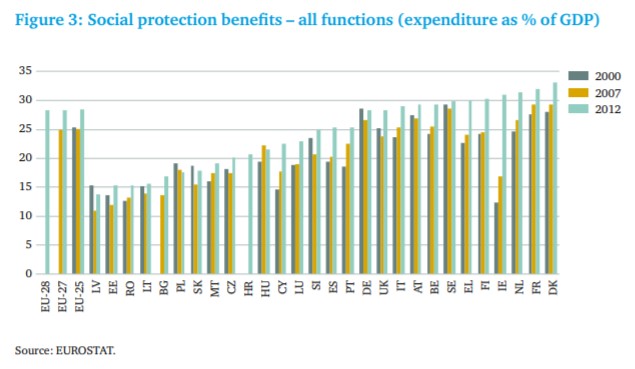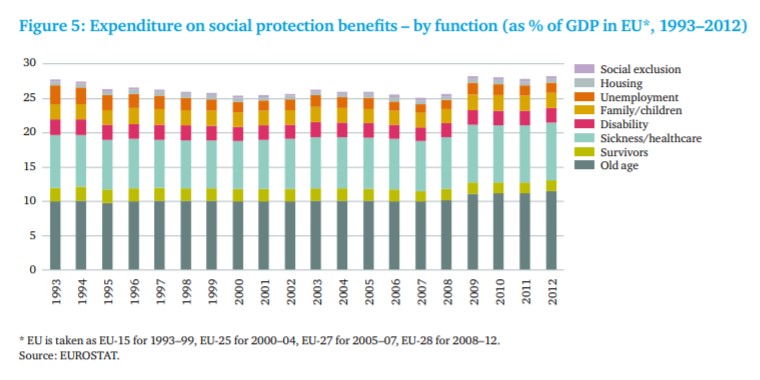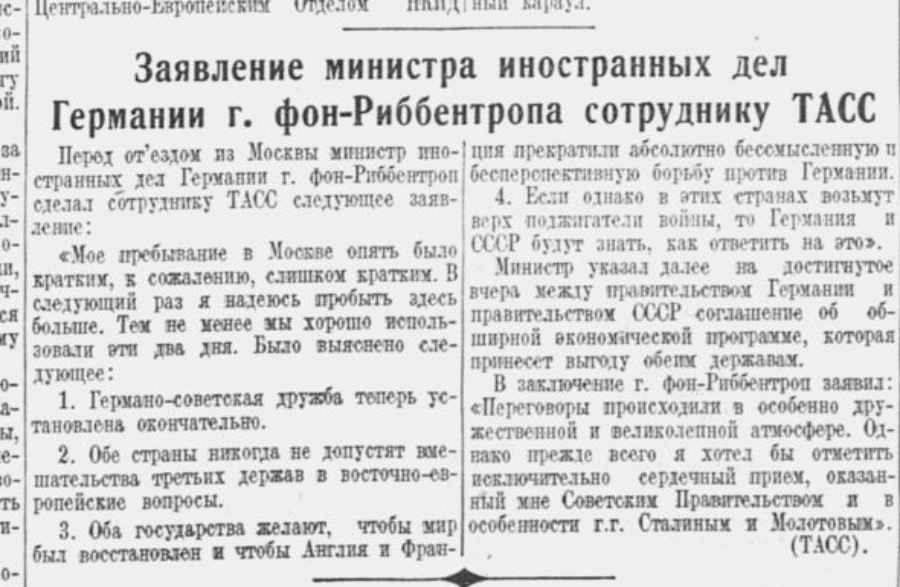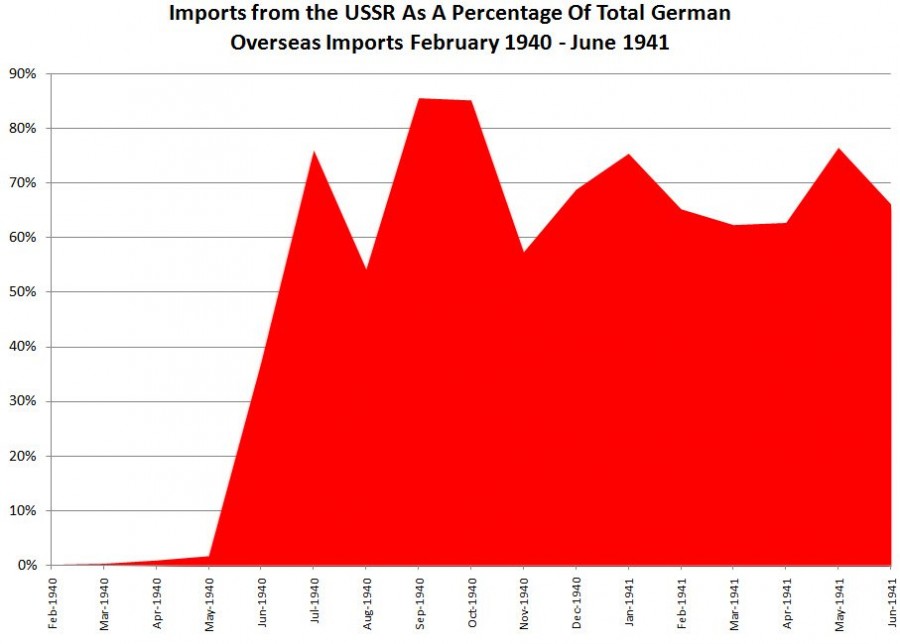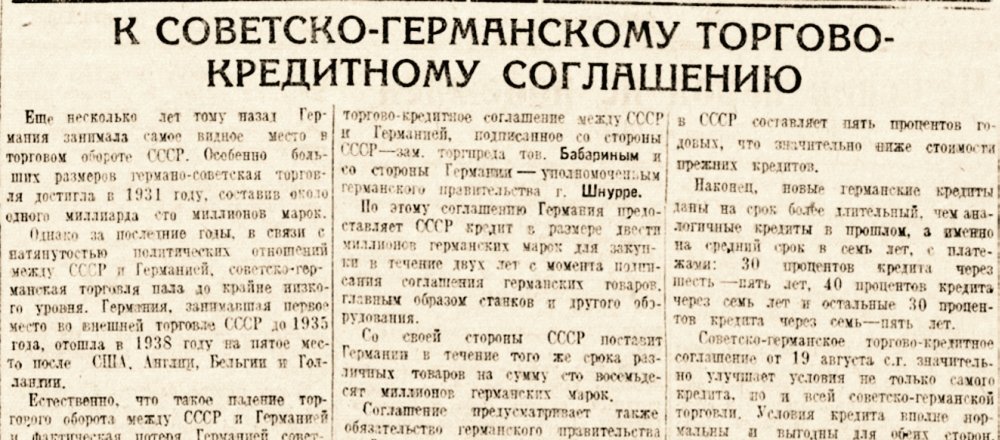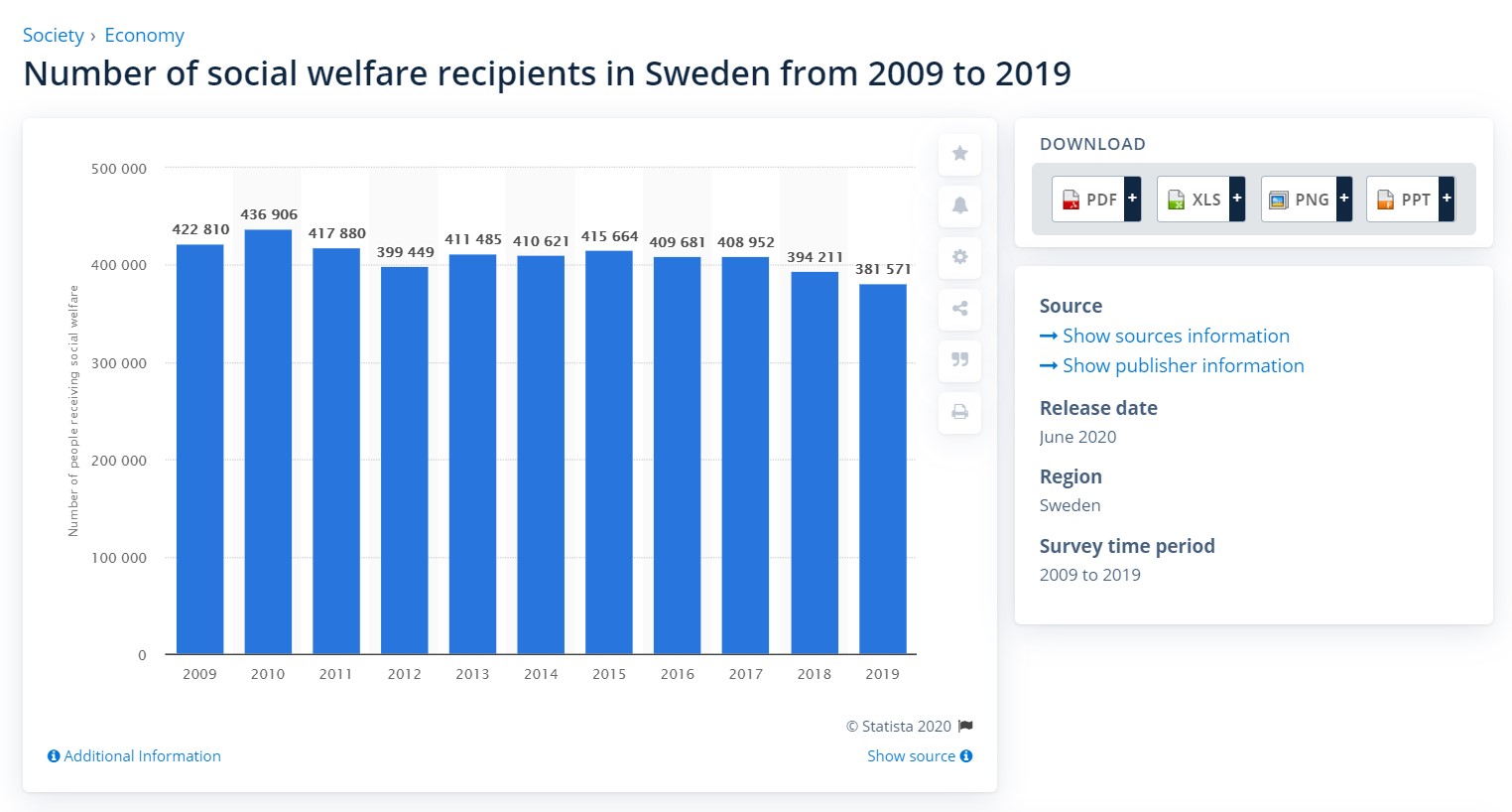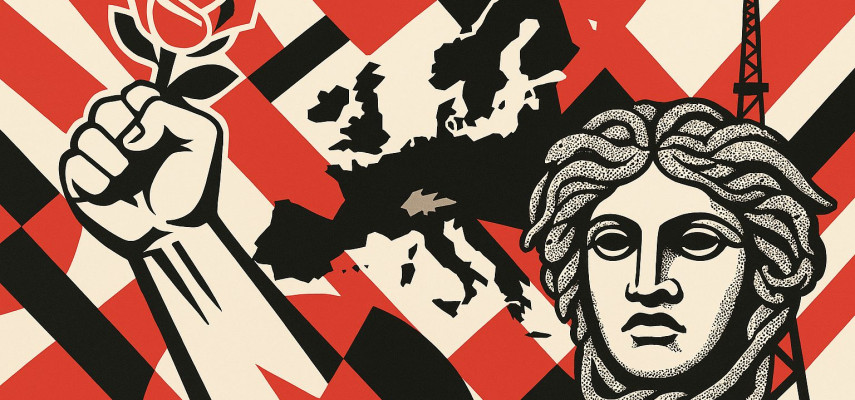
Myths About Social Democrats
In this article, "The Logic of Progress" aims to gather as many conservative and communist myths used to discredit social democracy as possible and to debunk them. Save this article so you don't waste time searching for rebuttals to these clichés, and share in the comments any new myths from our inventive conservative and communist friends that you come across.
Russia is a country with an exceptionally high concentration of myths about social democrats, largely because they have almost never held power here, whereas for a significant period Russia was ruled by communists (who led it to economic and political collapse by the late 1980s), conservatives (who led it to economic and political collapse in the early 20th century), and right-wing liberals (who led it to economic collapse in the 1990s — and to political collapse as well, considering the rise of Vladimir Putin’s entrenched regime). The ideological machinery of all these movements worked against the social-democratic viewpoint, creating a large number of myths which, however, are easily debunked.
Contents
- «Social Democrats Only Came to Power Thanks to the USSR»
- «The Welfare State Appeared Thanks to the USSR»
- «Social Democrats Fail to Improve People’s Lives»
- «Social Democrats Represent the Interests of the Bourgeoisie»
- «Scandinavian Countries Succeed Thanks to Capitalism, Not Social Democrats»
- «Europe Is Dismantling the Welfare State»
- «Social Democrats Aim to Transform Capitalism»
- «Social Democrats Are Marxists»
- «The CPRF are Social Democrats»
- «Social Democrats Supported American Imperialism and Bombed Iraq»
- «Social democrats are weak and spineless»
- «Social democrats helped fascists during World War II»
- «Social democrats supported World War I»
- «Social democrats have no theory»
- «Social democratic countries have high corruption»
- «Social democratic countries have high unemployment»
- «Social democratic economies are inefficient»
- «Social democratic countries are rich because they plunder the Third World»
- «Social democrats always hand power over to the right»
- «Social democracy has reached a dead end»
- «Social democrats are close to fascism»
- «Social democracy is only possible in Scandinavia»
- «Everyone in social democratic countries lives on benefits»
- «Social democrats are SJWs»
- «Social democrats are responsible for the murder of Luxemburg and Liebknecht»
- «Social democrats brought the Nazis to power in Germany»
- In conclusion
«Social Democrats Only Came to Power Thanks to the USSR»
This statement is most commonly voiced by communists. The idea is that Western elites were supposedly so terrified by the communist coup in the USSR that they handed power to social democrats to avoid a revolution in their own countries. As we saw in the article on social democratic parties, in Sweden the Social Democrats joined the government one month before the October Revolution; in Denmark, they have been part of governments since 1916; in Australia, they secured a majority as early as 1910. The article also lists many other examples of social democrats winning key government positions long before the USSR was established. They continue to win elections even today, decades after the fall of the Soviet Union. Thus, we see that this claim is unfounded: communists are simply trying to hijack the Social Democrats’ achievements — the results of their long political struggle — and claim them as their own.
The claim that communists managed to seize power in Russia thanks to social democrats and their reputation is far closer to reality. As for the notion that elites allegedly install social democrats and remove them at will — this is conspiracy theory, unsupported by facts. Moreover, after the Kravchenko affair in 1949, few in the West saw the USSR as a model of a viable society. On the contrary, the Soviet Union became more of a hindrance to social democrats, as right-wing forces could scare the public by claiming that the left wanted to create «another USSR».

Conclusion: Social democrats began winning elections and forming governments not because of the USSR, but thanks to their struggle for democracy, universal suffrage, fair elections, and other achievements.
«The Welfare State Appeared Thanks to the USSR»
Communists sometimes claim that the USSR was the first in the world to introduce the eight-hour working day, pensions, and so on. In reality, this is not true. For instance, the eight-hour workday was enshrined in the Mexican Constitution, adopted in February 19171. The work of Stephan Bauer and Alfred Maylander, «The Road to the Eight-Hour Day», describes the long struggle of workers and leftist political movements for the eight-hour day — during which the nine-hour day, as well as the eight-hour day for specific industries, were introduced — long before the USSR emerged2. For example, Melbourne stonemasons achieved an eight-hour day back in 18563.
The first country in the world to adopt pension legislation was New Zealand4. The renowned economist Erik Reinert notes that «by 1900, the system of social security in Europe and the triple-balanced power of industry had significantly improved the lives of industrial workers»5. Thus, once again, communists attempt to claim the achievements of others — namely, the labor and trade union movements, as well as all left-wing political forces.
The very notion that «communists frightened the elites, thereby forcing them to improve living conditions» does not withstand any serious scrutiny. By the same logic, Idi Amin or Jean-Bédel Bokassa could claim that they terrified the world’s elites with their cannibalism and genocides, forcing them to improve living standards in their countries — something that is, to say the least, highly dubious and in any case unproven.

Conclusion: The welfare state did not emerge thanks to the USSR but as a result of the labor movement’s struggle for its rights (or, in other words, what communists dismiss as «minor concessions» and «the increased survival of capitalism», as we will see further).
«Social Democrats Fail to Improve People’s Lives»
In the already-mentioned article on social-democratic parties (to which we will return several times), a vast number of achievements of the social-democratic movement are described — for example, their active role in creating welfare states in the Scandinavian and Oceanian countries. Here is how we described the period of Willy Brandt’s tenure as Chancellor of Germany:
During his term as chancellor, a scholarship system was introduced, as well as a flexible retirement age instead of the mandatory age of 65, and pension insurance was improved for people with low incomes. Changes in the healthcare insurance system focused on preventive measures and early disease detection, which improved the quality of medical services. Assistance for people with disabilities was expanded, and a law on improving workplace safety was adopted. According to the Works Constitution Act, workers received one-third of the seats on supervisory boards, and in companies with more than 2,000 employees — half of the seats.
And here is an example concerning the Australian Labor Prime Minister Ben Chifley:
Chifley increased social benefits (old-age and disability pensions), introduced pensions for widows, maternity and childbirth allowances, unemployment and sickness benefits, funeral payments, reformed taxation, and reduced unemployment to minimal levels.
Finally, we have seen that the countries leading in the Human Development Index are those with strong social-democratic parties. Therefore, communist claims here are simply not true.

Conclusion: Many social-democratic parties have achieved significant success in improving living standards in their countries.
«Social Democrats Represent the Interests of the Bourgeoisie»
Social democrats typically advocate for a progressive tax. Who benefits from it — business or workers? It is less beneficial for business since it forces businesses to give up a significant portion of their profits. Thus, we can see that social democrats do not exclusively serve business interests. In such cases, communists usually respond with something like «business prefers to share with the people to avoid revolution». This is pure demagoguery (of course, business does not want a revolution, but this in no way proves that social democracy serves its interests; business interests are usually represented by liberal-conservatives, libertarians, or other right-wing liberals). Using such logic, one could argue that communist parties benefit business because after their collapse, markets often flourish. Communists, of course, may invent whatever conspiracy theories they like — even suggesting that global capitalists predicted the communist coup in Russia and began giving social democrats government seats and implementing the eight-hour workday in advance — but this is the mindset of a failure looking to justify mistakes and misfortunes with imaginary powerful conspiracies.
In the United States, under Democrat Franklin Roosevelt (the Democratic Party is close to social democracy), the top progressive income tax rate reached 94%6. Under the influence of the Labour Party, the record top rate of 98% was set in the United Kingdom from 1941 to 1952 and again from 1974 to 19787. In other words, these so-called «servants of the bourgeoisie» in some cases forced capital to surrender nearly all its income.
What truly serves the interests of the broad population is not the dictatorship of the proletariat (which always devolves into the dictatorship of the nomenklatura, as we discussed in this article) nor the socialization of private property (which always turns into plundering by the nomenklatura, as we wrote here), but rather the policies pursued by social democrats. Marxist policies of proletarian dictatorship and abolishing private property, on the contrary, serve the interests of elites — namely, the nomenklatura. Plundering the people and establishing a dictatorship is not left-wing ideology.
Conclusion: Social democrats represent the interests of broad segments of society, while communists represent their own group interests, later transforming into a nomenklatura.
As we have already discussed in the article on social-democratic parties, in Sweden, the Social Democrats have been in power for 67 of the past 100 years (in Norway — 54 years, in Denmark — 56 years). In that article, we clearly saw that the majority of the top 20 countries on the Human Development Index are characterized by strong social-democratic parties. Meanwhile, in countries such as Mexico, Ukraine, Egypt, Indonesia, and others, which have market economies but weak social-democratic movements (not to mention many African countries), the standard of living is not as high. The result of implementing «capitalism» in line with the Washington Consensus, as we saw, for example, in the article on economic growth and the article on the free market, is slower economic growth and recurring crises.
If social democracy were ineffective, it would logically follow that countries where social democrats have been in power for a long time would not be leaders in most quality-of-life indicators. However, as we see, long-term social-democratic governance does not make these countries unsuccessful — quite the opposite correlation is observed.
These facts themselves prove that the mere presence of «capitalism» has nothing to do with a country’s prosperity, while the strength of the social-democratic party does. In other words, right-wing liberals who spread this myth are trying to steal the achievements of social democrats in exactly the same way as communists do. Professor Ha-Joon Chang of Cambridge University confirms that the welfare state, for example, in Sweden was developed specifically under social-democratic rule:
Another country where significant reforms were carried out is Sweden. Capitalizing on public dissatisfaction with liberal economic policies that left 5 percent of the population unemployed, the Social Democratic Party came to power in 1932. Corporate taxes were introduced surprisingly late for a country that is today considered a bastion of this tax (for comparison, the UK introduced income tax in 1842, and even the tax-averse USA began levying it in 1913). The revenues thus collected were used to build a welfare state (unemployment insurance was introduced in 1934, and old-age pensions were increased) and to assist small farmers (farm loans were expanded, and guaranteed minimum prices for agricultural products were established). In 1938, centralized trade unions and employers’ associations signed the Saltsjöbaden Agreement, which established peaceful resolution of industrial conflicts8.
It is downright absurd when the prosperity of Scandinavian countries in the mid-20th century is attributed to 19th-century reforms. Why not to the 16th century? Could we then claim that Russia’s economic growth in 2000–2008 was the result of Soviet policies? We could continue this chain of absurd arguments: that Germany’s economic miracle happened thanks to Adolf Hitler rather than democrats, that the U.S. economy recovered from the Great Depression thanks to Herbert Hoover rather than Franklin Roosevelt, that Singapore’s economic growth happened thanks to colonial administration rather than Lee Kuan Yew, and so on. It’s obvious that if a democratic force were to replace dictator Vladimir Putin, carry out reforms, and achieve success, conservatives would claim that the credit belonged not to the new government but to Putin. This is nothing but stealing others’ achievements — a common tactic of right-wing liberals. Social-democratic reforms did not automatically follow from 19th-century reforms; the opposite policies could well have been implemented.
Conclusion: A strong social-democratic party is an integral component of the success of most countries that lead in quality-of-life indicators. Without social democrats, there is usually no one to fight for the expansion of the welfare state and against rising inequality.
«Europe Is Dismantling the Welfare State»
In reality, the welfare state is being dismantled where communists or right-wing liberals have been in power — such as in the post-Soviet space, where brutal forms of conservative rule have taken hold. Where social democrats are in power, they do not establish dictatorships or destroy democracy; thus, conservative parties sometimes replace them and roll back parts of the welfare state. But social democrats usually return.
In any case, wherever social democrats are strong, the welfare state and the standard of living are among the highest in the world. This is confirmed both by the Human Development Index and by other indicators. If somewhere the right comes to power and living standards deteriorate, this is a reason to join social-democratic parties and movements and work to strengthen them, rather than turn to communist practices, which have failed catastrophically everywhere and have led to either «wild capitalism» or the dictatorship of the nomenklatura.
During the coronavirus pandemic, the authorities of Spain (led by social democrats) allocated €200 billion to support families, workers, and entrepreneurs, as well as to fund medical and scientific research, suspend mortgage payments, and more9. In Germany, the authorities at the same time provided citizens with one-off non-repayable grants of up to €9,00010. In Denmark, the state covered 75% of company salaries during the pandemic, provided employees were not laid off11. Luxembourg, where social democrats are part of the ruling coalition, became the first country in the world to introduce free public transport in 202012. In 2021, Spain, under social-democratic leadership, piloted a four-day workweek13. In other European social democracies, experiments are underway with six-hour workdays14 and the introduction of a universal basic income15, while communists continue lying about «dismantling» the welfare state. According to a study by the Chatham House think tank16, social spending in EU countries is not only not decreasing overall but is even rising in some cases:
The same conclusion is drawn from the data of Our World in Data17. The so-called «dismantling of the welfare state» is just another variation of the Kremlin propaganda trope about a «decaying West». As we well know, the West has been «decaying» for decades, and the welfare state has supposedly been «dismantled» for decades, yet countries with strong social-democratic movements have consistently ranked among the highest in all quality-of-life indicators. There are no scholarly works that prove, based on statistics, facts, and laws, that social democrats are dismantling the welfare state (except for works by communists, which have as much scientific merit as publications by the Russian Orthodox Church). And such evidence cannot exist, since one would need to prove that these are not temporary fluctuations, and there is simply no factual basis for that. Thus, the idea of «decaying social democrats» is as much a fraud as the myth of the «decaying West», and both manipulative narratives share the same origins.
Conclusion: In developed countries, the welfare state is not being dismantled — in fact, new elements are being introduced. Meanwhile, the Russian nomenklatura encourages people to pray for solutions to social issues while spreading myths about the «decaying West».

«Social Democrats Aim to Transform Capitalism»
In the article on economic systems, we have already demonstrated that capitalism, if we use precise definitions of the term, implies a free market; therefore, in countries with substantial market restrictions, capitalism — according to its standard definitions — no longer exists. And since social democrats advocate for a progressive tax, they cannot be said to support capitalism or its transformation (because that would no longer be capitalism). However, more often than not, «capitalism» is just a demagogic label used by communists to describe any state they do not govern (we explored this issue in detail in this article).
Secondly, the goal of social democrats is not to achieve any particular economic formation (in this material, we explained why we do not support the theory of socio-economic formations) but to build an economy that advances progressive values. In other words, social democrats have no goal of «transforming capitalism».
A variation of this manipulative short thesis is «Delaying progress through minor concessions». Communists claim that social democrats merely blunt the contradictions of capitalism, increasing its survivability — through reforms and improving living standards within the system. This is a truly anti-popular, misanthropic communist thesis: it creates the belief that there is no need to demand reforms, improve working conditions, etc., because these supposedly «increase the survivability of capitalism» (while the only alternative is a planned economy, which does not work and led to the economic collapse of the USSR). Thus, communists actively worsen living standards, work against society, and are enemies of the labor and leftist movements.
We saw above that broad social movements and trade unions have successfully achieved the introduction of social guarantees without communists. By spreading the thesis of «minor concessions», communists cultivate passivity, apathy, and reluctance among the masses to fight for their rights, thereby serving the interests of societal elites. As we noted in the article on institutional theory, opposition movements demanding reforms («minor concessions», in the communist view) play a crucial role in shaping inclusive institutions and winning social guarantees.

Conclusion: Social democrats aim to improve living standards, not to declare, as communists did, that «socialism has been built, and therefore everything is fine». «Capitalism» and «socialism» are vague labels that say nothing about the actual quality of life.
«Social Democrats Are Marxists»
As noted by the authors of the Great Russian Encyclopedia, «the very concept of ‘socialism’ has started to fall out of use within the parties of the Socialist International. It has been replaced by the concept of ‘social democracy’18. The Social Democratic Party of Germany (SPD), one of the oldest and largest social democratic parties in the world, renounced Marxism as early as 1959 after adopting the Godesberg Program19 and abandoned demands for the nationalization of the means of production20. Spanish social democrats abandoned Marxism in 197921. In 2013, the Progressive Alliance was established, which largely entailed a rejection of Marxism (for example, the word ‘socialist’ is no longer present in the name of this international). Nils Karleby, one of the key theorists of Swedish social democracy and author of «Socialism: Facing Reality», rejected Marxism as early as 1926 and called for making humanism, rather than the principle of economic determinism, the foundation of socialist thought. He believed that adherence to humanism and a commitment to democratic methods should be enshrined in the party program22.
The chairman of the Social Democratic Youth Union, Rickard Lindström, wrote a highly influential work on the defeat of the Social Democrats in the 1928 elections… He argued that the Social Democrats must abandon their outdated commitment to class analysis and recognize that the conflicts of economic groups and interests cannot be neatly fitted into party frameworks. Lindström called for less focus on differences between social classes and instead advocated creating a ‘people’s party,’ in which Social Democrats would follow a program based on common sense23.
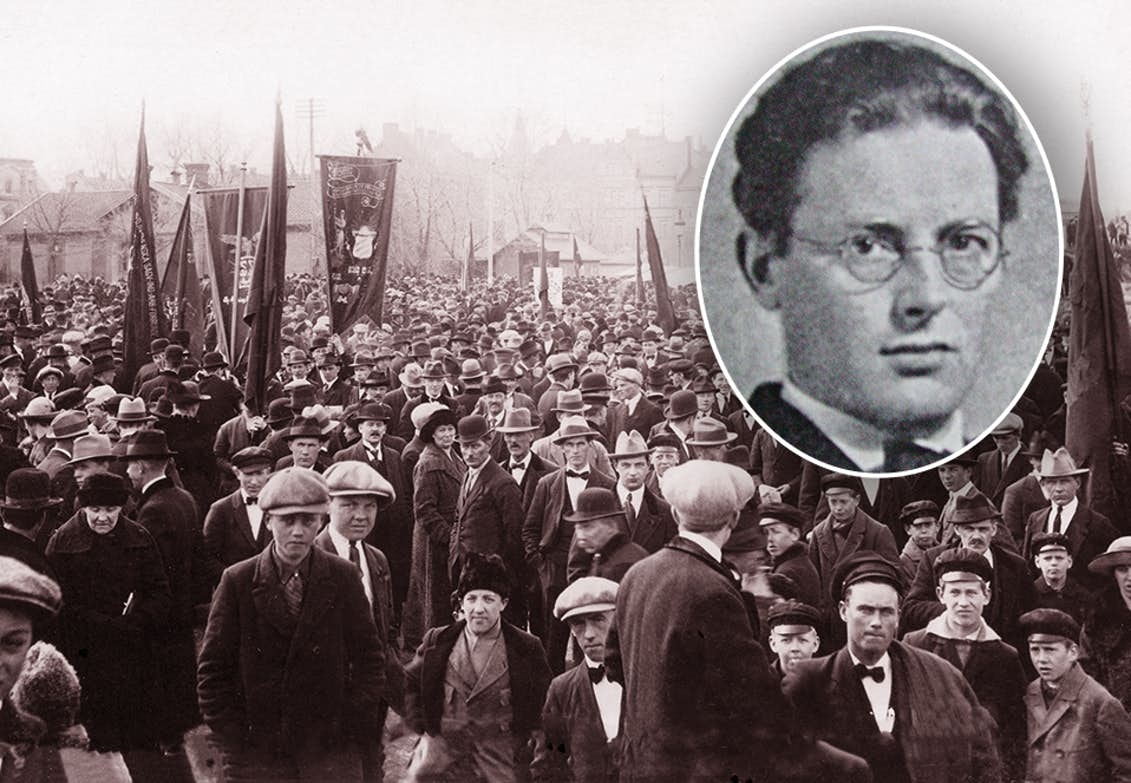
We can thus see that a significant part of the most progressive Social Democrats are not Marxists, which does not at all prevent them from achieving major successes in building welfare states. Of course, there are also Social Democrats who consider themselves Marxists. However, the vanguard of the movement has long recognized the shortcomings of Marxism, including those described in our article, and has moved on to embrace and study scientific mainstream approaches and evidence-based policy, which involve using various concepts. It should also be noted that this has always been the case: among Social Democrats, there have always been plenty of people who did not accept Marx’s theory:
It should be noted that the leaders of Social Democracy treated the «ideological wealth of Marxism» quite peculiarly. For instance, in 1875, in the small town of Gotha, the General German Workers’ Association («Lassalleans») and the Social Democratic Workers’ Party («Eisenachers» — named after the city of Eisenach where the party was founded in 1869) united. At the congress, a new party program was adopted, and Karl Marx wrote an extensive commentary on its draft, which later became known as the «Critique of the Gotha Program». However, Marx’s remarks were ignored — they were simply shelved, as we say, and the document remained there until the 1890s, when at the insistence of F. Engels it was published in the theoretical journal «Neue Zeit» («New Times»)24.
Conclusion: Among Social Democrats, there are Marxists, but a significant number are non-Marxists, meaning these are two different sets.
«The CPRF are Social Democrats»
Sometimes Marxists claim that the Communist Party of the Russian Federation (CPRF) is not Marxist or communist, but social democratic. This is usually argued on the grounds that they do not adhere to the principles of the dictatorship of the proletariat, the revolutionary path, and the abolition of private property. But by such logic, nationalists, monarchists, liberals, and many others would also have to be called Social Democrats. So this is mere demagoguery.
The CPRF party program states that it «is guided by Marxist-Leninist teaching», that «imperialism» wants to impose «spiritual decay and cosmopolitanism», that the party seeks «to save the Fatherland» and solve the «Russian question», declares patriotism a fundamental value, talks about «the importance of the ideas of J.V. Stalin», and claims that «defending Russia’s national and state interests is today inseparable from the struggle for socialism». The CPRF demands to «protect Russian culture as the basis of the spiritual unity of multinational Russia», to «shield society from the propaganda of vulgarity and cynicism in the media, ensure access to state media for all political forces operating within the law, and stop the denigration of Russian and Soviet history»25. It is impossible to imagine Social Democrats pursuing such a conservative and nationalist agenda. We have already written about why patriotism is harmful, why cosmopolitanism is close to Social Democrats, about Stalin’s crimes, and why «denigration of history» is a manipulative technique of conservative propaganda. The CPRF is not social democratic — it is something between social conservatives, market Marxists, and Soviet patriots (we discussed various ideologies in more detail here). The party’s Central Committee secretary and presidium member, Sergey Obukhov, has stated that the CPRF is not social democratic because it needs to oppose the Western way of life:
We are communists, not Social Democrats. Yes, that is also a left-wing movement, but still a separate and distinct one. We differ fundamentally from the Social Democrats because we do not accept the Western project of world order — that is our fundamental difference. We have our own alternative project. And Social Democracy, for all its leftist ideology, only aims to improve the Western project of world order26.
The key figures of the CPRF claim that «the main task today is saving national statehood», declare the party part of the Orthodox Christian world27, and approve of mentioning God in the Constitution28. Social Democrats have never declared spirituality, religion, or any state itself as their values — their values have always been human life, quality of life, and a secular state. While CPRF figures deliver ultraconservative speeches about «a new avalanche descending upon us under the banners of the Anglo-Saxons»29, about «slanderers» and «jackals» who «pour filth» on Stalin30, Social Democrats fight for the unity of people regardless of nationality and against attempts to rehabilitate the mass murderer Joseph Dzhugashvili (Stalin).
Conclusion: The CPRF is not social democratic; it is a party uniting social conservatives, market Marxists, and Soviet patriots.
«Social Democrats Supported American Imperialism and Bombed Iraq»
With this argument, communists defend conservative authoritarian regimes such as that of Saddam Hussein and the Ba’ath Party. The difference between communists and Social Democrats is that the former supported murderers like Jean-Bédel Bokassa (whose policies, it is rumored, included cannibalism, yet were considered progressive in the USSR, and who was even treated in a Moscow clinic for the elite31) and Idi Amin (an eccentric politician who called Adolf Hitler his teacher32 and disliked human flesh for being too salty33, to whom the USSR sent about 500 military advisors34), whereas the latter oppose such figures and are ready to ally with countries where the standard of living is high and democratic principles like rotation of power are respected.
Saddam Hussein was a war criminal who dragged his country into a devastating war with Iran, invaded Kuwait, and initiated the genocide of the Kurds through the use of chemical weapons (the «Anfal» campaign35). Had his regime not been dismantled, it would have threatened Iraq and other nations with new wars and massacres. Therefore, social democrats fully support military intervention aimed at subduing the Iraqi elite (the 1990–1991 Gulf War was supported by Norway and Sweden, both governed by social democrats at the time). Of course, the Iraqi people deserve sympathy, but the aggressor responsible for Iraqi deaths was Saddam Hussein. Had he continued his policies of aggression, Iraqis would have faced new mass killings, far more numerous than those resulting from Operation Desert Storm. Justifying Hussein is no different from justifying Adolf Hitler — yet this is precisely what communists did back in 1939.
Thus, this myth is only partially true. Social democrats are indeed willing to use military force against cannibalistic and fascist regimes that communists support. However, they make every effort to ensure such actions do not result in mass casualties and are resolved swiftly with minimal harm to civilians.
At the same time, critics of social democrats forget that their positions on such matters vary — for example, Australian Labor leader Gough Whitlam, upon becoming Prime Minister, withdrew Australian troops from the Vietnam War within a week36. Communists, on the other hand, carried out military interventions in Poland and Finland in 1939, supported many of the most reactionary dictatorships — such as North Korea — and continue to support them today.
Conclusion: Social democrats support the fight against dictators, not some so-called «imperialism».
«Social democrats are weak and spineless»
This myth contradicts the previous one. Some communists somehow manage to claim that social democrats are weak and spineless while simultaneously accusing them of participating in operations to suppress dictatorships and of crushing the KPD uprising (let us recall that German communists organized an armed revolt and were surprised when their leaders were shot in the back of the head).
Moreover, one must first define what «weakness and spinelessness» actually mean. If it refers to a tendency to avoid repression and war, this aligns with the interests of the majority of people and reflects universal human values.
Conclusion: Social democrats are capable of taking tough measures when absolutely necessary, but such measures must never escalate into mass terror and repression.
«Social democrats helped fascists during World War II»
If Sweden’s neutrality during World War II and its continued trade with Germany are to be considered «help», then yes, they did. But is it reasonable to equate trade with assistance, especially since this accusation could be leveled against nearly any political movement of the time? For example, the communists who like to repeat this claim forget that by the same logic they themselves supported the Nazis, since Stalin supplied Nazi Germany with 1.5 million tons of grain, 2 million tons of oil products, 1 million tons of cotton, 1.5 million tons of timber, 140,000 tons of manganese, and much more37. Trains continued to deliver goods to Germany right up to June 22, 1941, and the last train carrying Soviet grain crossed the bridge over the Western Bug at Terespol just 1 hour and 15 minutes before Germany attacked the USSR38. There is even an «Agreement on Mutual Deliveries of Goods for the Second Contractual Period under the Economic Agreement of February 11, 1940, between the Union of Soviet Socialist Republics and Germany»39. From May 1940 (Germany’s invasion of France) until June 22, 1941, 70% of all raw materials imported by Hitler came from the communists40. Furthermore, communists divided Eastern Europe into «spheres of influence» with the Nazis in the secret protocols of the Molotov–Ribbentrop Pact41, which is a far more serious form of collaboration than mere trade.
If trade is to be considered collaboration, then almost every political movement at the time collaborated with the Nazis — this is a criticism not of social democrats alone, but of all contemporary movements.
Critics also forget that Sweden is a small country that could have been easily occupied by Nazi Germany had it refused to trade, and would have supplied raw materials under even harsher terms. The communist USSR faced a far lesser threat of invasion. One could say that Swedish social democrats erred in trading with Hitler, but Sweden was not a country capable of mounting effective resistance to the Nazis.
It is also worth noting that in 1940 the Labour Party was part of the coalition government of the United Kingdom42, and this was the first country Hitler failed to conquer. At that time, the communists were still collaborating with the Nazis.
Conclusion: First, not all social democrats traded with the Nazis; second, representatives of virtually every ideology of the time engaged in trade with them — so this cannot be used as an accusation against social democrats.
«Social democrats supported World War I»
Not all social democrats supported this decision. When the German SPD voted for war credits in 1914 (even then, not the entire SPD supported it — during the faction meeting, 14 votes were cast «against», including the vote of the party leader in the Reichstag, Hugo Haase43), most Russian social democrats saw this as a betrayal of the international social democratic movement — from Plekhanov to Lenin. For example, Julius Martov called it «treason» and stated that the Germans had «utterly disgraced the banner of Marxism and scandalously destroyed their hegemony in international socialism»44. The Menshevik Pavel Axelrod wrote about the SPD vote:
They should not have been swayed by fairy tales about fighting Russia. They… should have stated that, since the responsibility lies with the ruling elites — since they have dragged the country into an adventure — then let them pay for it. The German working-class party cannot and must not vote for war credits and therefore abstains. This was the minimum level of activity that social democrats should have shown45.
Georgy Plekhanov accused the SPD of betrayal and declared that it had left the ranks of global socialism46. Alexander Potresov said, «This was betrayal. This was real treason»47. By mid-1915, opposition to war supporters within the SPD had already grown to 36 deputies48. German social democrats began defying party discipline and, by abstaining, walked out of Reichstag sessions. After the war, Karl Kautsky wrote in his work «How the World War Began»:
Even during the war, individual brave and farsighted German socialists and pacifists realized and openly said that the German people had been vilely deceived by their government, and that only by such deception could they have been dragged into the war. Now, at last, without any «buts» or «ifs», and without pointing fingers at other countries, this must be acknowledged by all honest elements of Germany49.
It is also worth remembering that the Bolsheviks, who opposed the war, were themselves social democrats at that time. Most social democratic parties of the era included chauvinists, centrists, and a revolutionary wing. When today’s communists lump them all together and ascribe the views of the chauvinists to all social democrats, by that logic, communists themselves also supported the war. However, this is a deception and a manipulation of terms.
Nevertheless, the SPD’s mistake of 1914 was so grave that the party’s policies of that period deserve outright condemnation. This is precisely why progressive social democrats must wage a determined struggle against any form of «patriotism». It was the «patriotic» wing of social democracy at that time that decided the interests of their country justified war and bloodshed — and the patriotic wing could do it again. To prevent this, it must be confronted as decisively as communism.
Conclusion: A significant portion of social democrats did not support the war.
«Social democrats have no theory»
Communists claim that social democracy is merely a populist idea rather than a coherent understanding of what policies should be pursued. «Logic of Progress» is created specifically for those who require a structured and systematic theory of social democracy. We are creating this journal with the awareness that it could be perceived as a set of dogmas or a «holy scripture». Therefore, we must state here that social democracy is, above all, a set of progressive values, and the methods of implementing them can evolve and should not be rigidly tied to any fixed body of texts.
Conclusion: With the creation of «Logic of Progress», we can see that social democrats do have a theory. The real populist idea is communism, which lacks a clear program of transformation and examples of its successful implementation in practice.
«Social democratic countries have high corruption»
Let us open the Corruption Perceptions Index for 201950. Looking at the top 10 countries (with the lowest level of corruption) and excluding two microstates (Luxembourg and Singapore), what do we see? The list includes traditional social democratic countries — Sweden, Denmark, Norway, and Finland. We also find Germany and New Zealand, where social democrats are strong and part of the government, as well as the Netherlands and Switzerland, which have influential social democratic parties. Thus, the countries with the lowest corruption levels are largely social democratic nations.
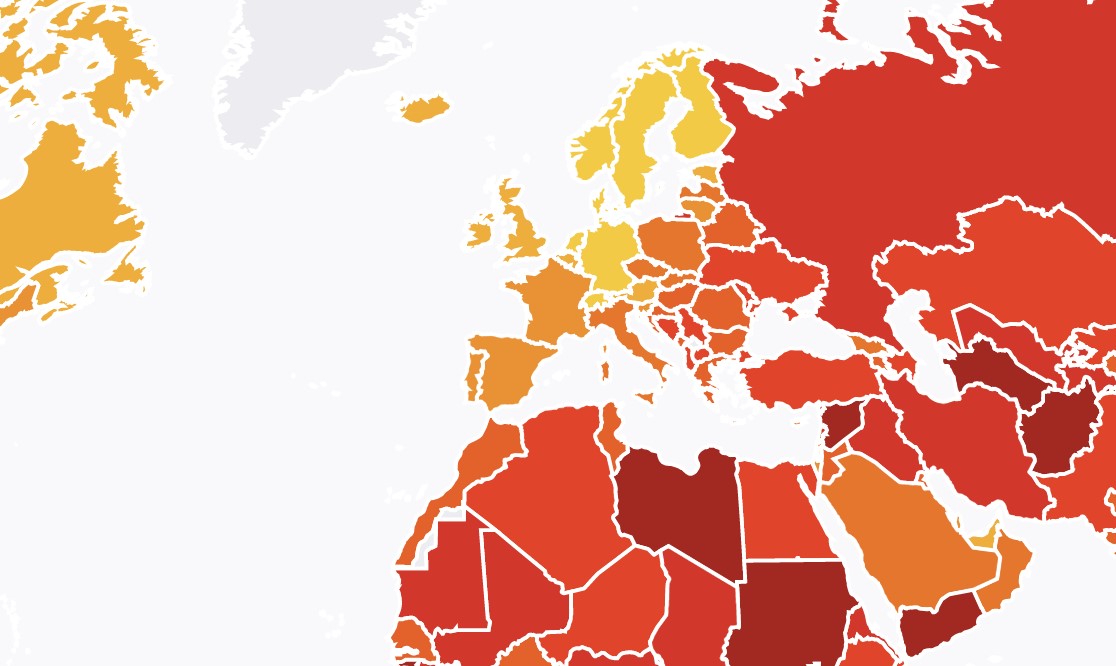
Conclusion: Corruption in countries with strong social democratic traditions is among the lowest in the world.
«Social democratic countries have high unemployment»
Let us examine the unemployment ranking by country, according to World Bank data — a total of 182 countries are listed51. Sweden ranks 71st globally for unemployment (the closer to 1, the higher the unemployment), Norway is 139th, Denmark 98th, and Finland 69th. Germany is 145th, and New Zealand is 122nd. In fact, the only country with high unemployment where social democrats are strong is Spain — 20th place globally (while Doctor of Economics Irina Osadchaya emphasizes that the rise in unemployment there was caused by the restructuring of the economic model undertaken by conservatives52).
If we look at more or less prominent countries where social democrats are not particularly strong, we can see the following examples: Greece – 13th place, Brazil – 30th place, Ukraine – 51st place. As we can see, there is no correlation between the strength of social democrats and high unemployment.
Moreover, in social democratic countries, unemployment is not considered a disaster thanks to decent welfare benefits. In other words, thanks to social democrats, even if you cannot find a job, you can at least survive while you are looking for one.
Conclusion: There is no link between the strength of social democrats and high unemployment in a country.
«Social democratic economies are inefficient»
Let us open the list of countries with the highest income (GNI) per capita for 201053. Looking at the top 10 richest countries on the list (excluding countries with a population under 500,000):
- Norway ($85,380);
- Switzerland ($70,350);
- Denmark ($58,980);
- Sweden ($49,930);
- Netherlands ($49,720);
- Finland ($47,170);
- USA ($47,140);
- Belgium ($45,420);
- Australia ($43,740);
- Germany ($43,330).
No further commentary is necessary. By 2019, the list had not changed significantly, with the top 10 major countries being Switzerland, Norway, the USA, Denmark, Ireland, Sweden, Australia, the Netherlands, Austria, and Finland54. If we look at the GDP (PPP) per capita list according to World Bank data for 201955, we see that, excluding microstates like Macau or Qatar, the leaders are:
- Ireland;
- Switzerland;
- UAE;
- Norway;
- USA;
- Iceland;
- Denmark;
- Netherlands;
- Austria;
- Germany;
- Sweden;
- Belgium;
- Australia;
- Canada;
- Finland.
We can see that, according to these well-known economic indicators, the leading group is largely composed of countries with strong social democratic influence. As we mentioned in the article about Tony Blair, during his 10 years as Prime Minister, the UK experienced continuous economic growth, which became one of the most successful periods in its history.
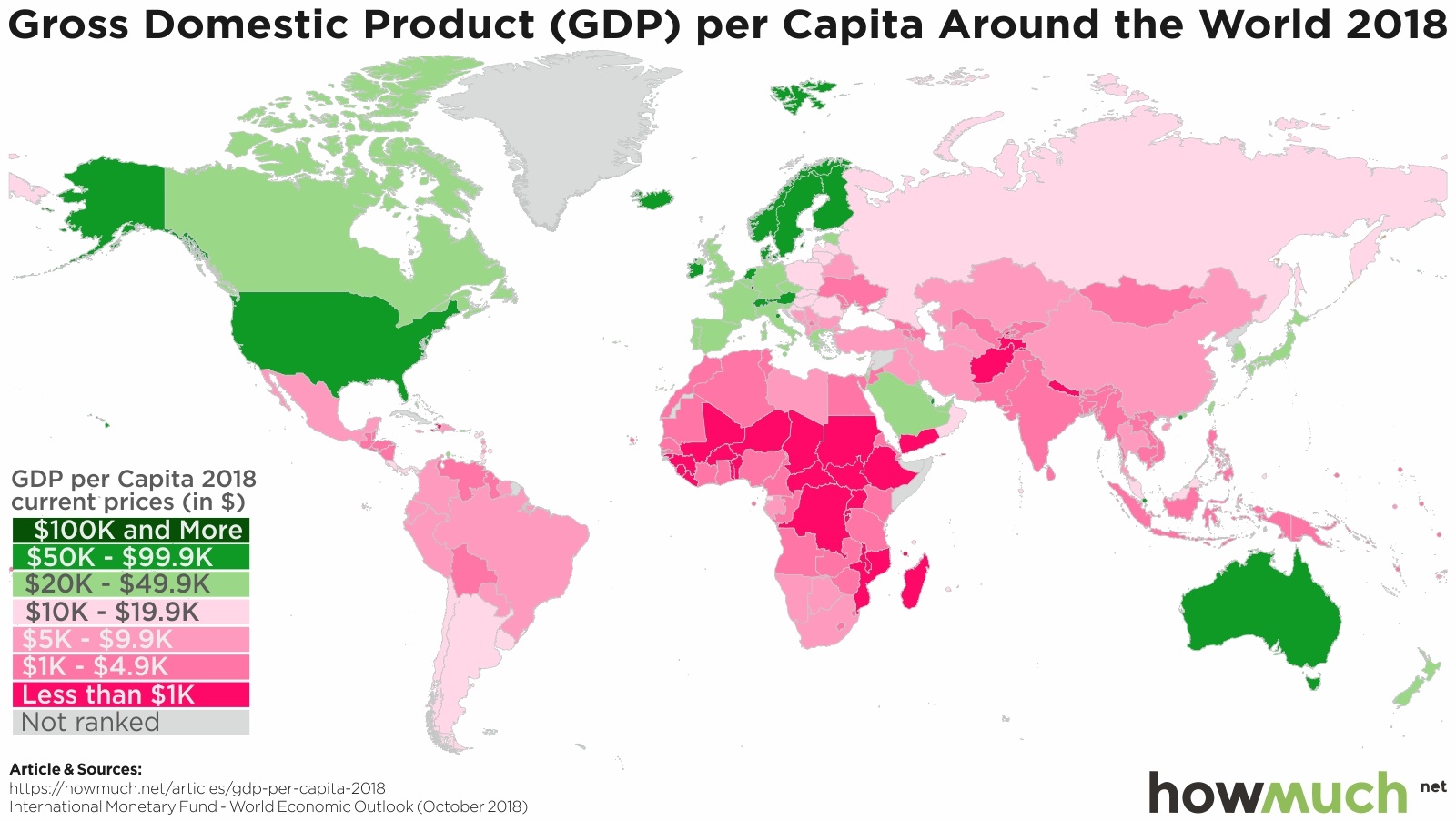
Conclusion: In countries with strong social democratic parties, the economy functions with a high degree of efficiency.
«Social democratic countries are rich because they plunder the Third World»
As we have already seen, social democratic countries simply produce more per capita. They export a great deal — for example, with a population of 10 million, Sweden ranked 31st in the world for exports in 2018, while Egypt, with nearly 100 million people, ranked only 68th56. Combined, Sweden, Norway, and Denmark (with a total population of about 22 million) exported more than India, which has a population of 1.35 billion. And this is not even mentioning Germany, which is one of the world leaders in manufacturing. In Deloitte’s Global Manufacturing Competitiveness Index, Sweden ranks 13th, Finland 24th, and Germany 3rd57. According to World Bank data, if we consider total manufacturing output, Sweden, Norway, Denmark, and Finland combined (about 28 million people) produce more than Brazil with its 209 million population58. It is unclear what there is to «plunder» in countries where people produce dozens of times less than you do — and, more importantly, why it would even be necessary.
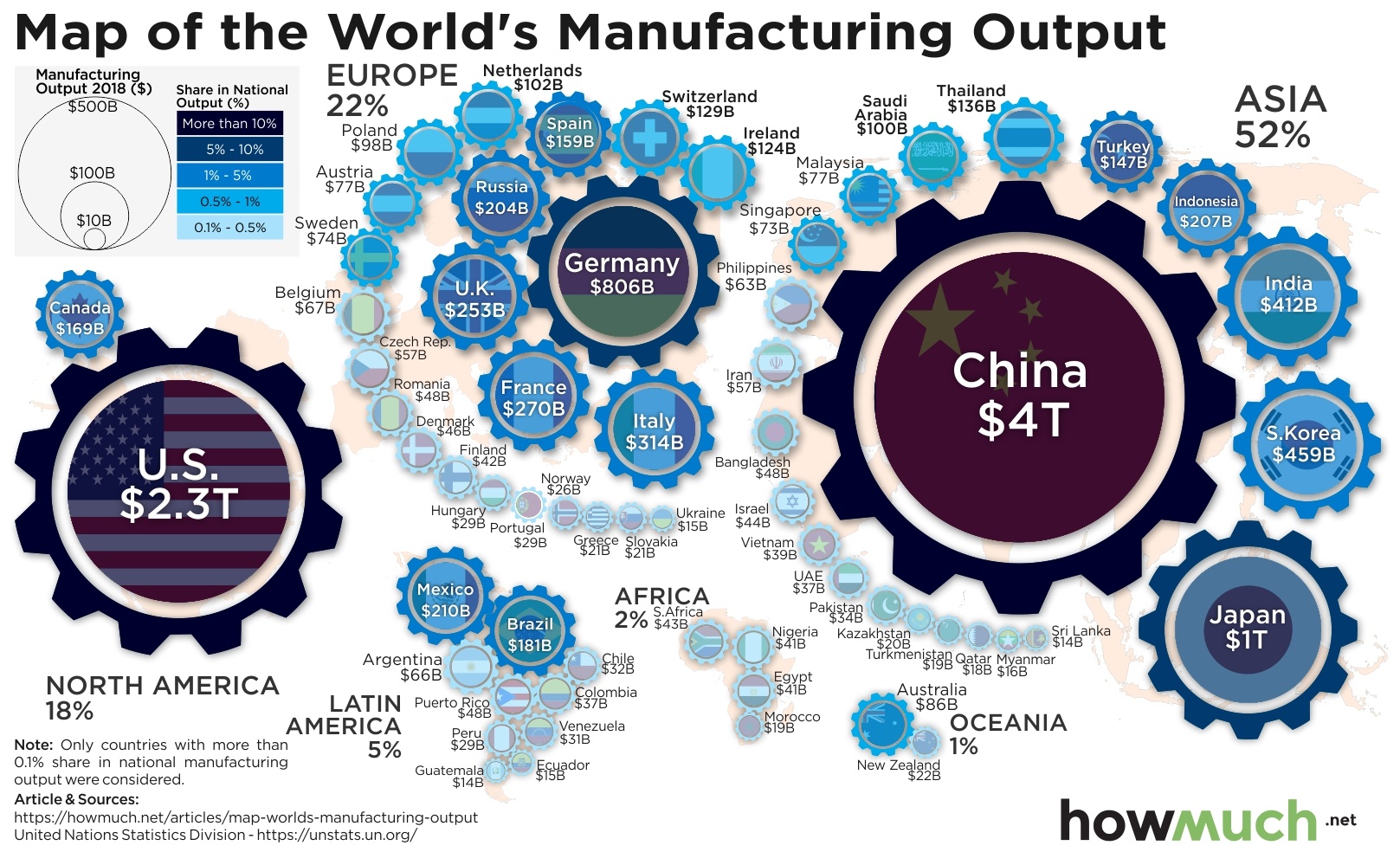
It sounds even more absurd when people claim that workers at Volvo, Nokia, IKEA, LEGO, and other high-tech and popular companies are wealthy because they are «plundering» African farmers or Vietnamese weavers, rather than because their labor is more highly skilled and the organization of labor in their countries is at a much higher level. For example, the top five countries for agricultural exports in 2007 were the USA, the Netherlands, Germany, France, and Canada59, despite the fact that agriculture accounts for less than one percent of the US GDP60.
The most well-known studies on the causes of national wealth by respected experts — including the work of Daron Acemoglu and James Robinson, as well as that of Erik Reinert — argue that the prosperity of nations is linked to sound government policies rather than to the plundering of others.
Social democratic countries also rank among the leaders in the Corruption Perceptions Index61, meaning that state budgets are not being looted there. Yet Marxists and world-systems theorists seem to ignore these obvious factors of prosperity, instead looking for some conspiracy or act of pillage. The delusion of communists is based on the idea, as phrased by communist blogger Konstantin Syomin, that «for someone to have a full belly, someone else must go hungry, someone must be robbed»62. This resembles the mindset of a street thug who doesn’t know how to build or earn anything, only how to take from others. Do communists not understand that in order to feed people, one must develop agriculture rather than seize food from someone else? This largely explains why their regimes so often end in poverty and famine.
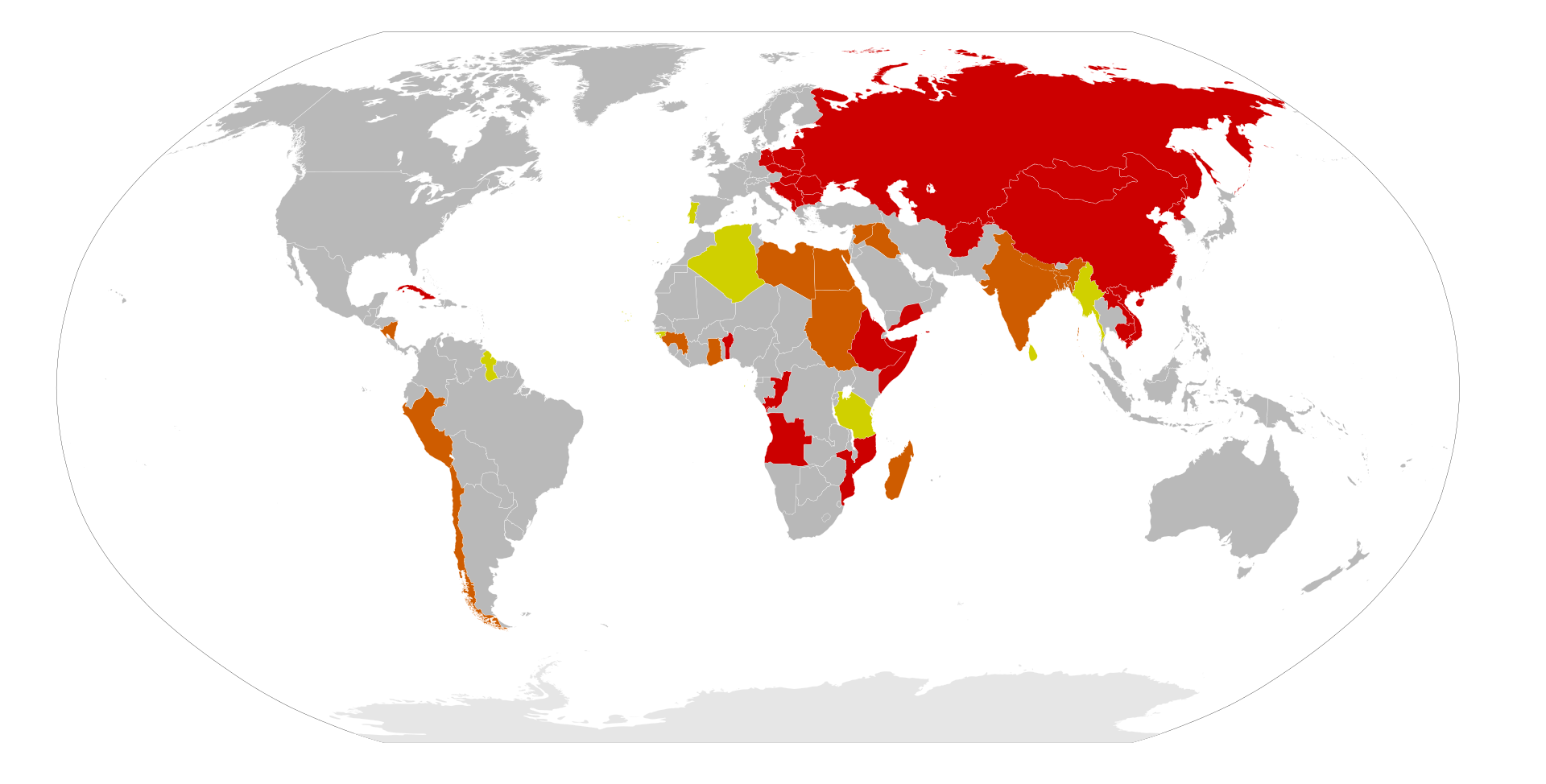
The example of the Netherlands must be shocking to communists. After all, this country, ranking 131st in the world by land area and not particularly suited for growing crops, is the second-largest agricultural exporter in the world. National Geographic describes farmer Jacob van den Borne, who harvests over 20 tons of potatoes per hectare, compared to the global average of 9 tons63. Wageningen University is considered a world leader in agricultural research. In the Netherlands, they use alternative soil composites that guarantee the elimination of harmful fungi (which could otherwise destroy crops)64, create floating farms, autonomous tractors, scanning drones, reduce water use by 90%, and develop new methods of feeding livestock65, among other innovations. Yet according to communists, developed countries owe their wealth not to such advancements but to plundering camel traders.
Sometimes communists and world-systems theorists present statistics showing that industrial output has declined in a given country and claim that this means the country produces nothing and lives off plunder. This is a deliberate misinterpretation of facts — by the late 20th century, manufacturing had been gradually giving way to the services sector worldwide, including in developing countries. For instance, even in Sub-Saharan Africa, the share of industry in GDP dropped from 50% in 1980 to 30% in 2006, while the share of services grew from 43% to 67% over the same period66. By the communists’ logic, does this mean Sub-Saharan Africa is «plundering» everyone? The decline of the industrial sector in the global economy is as natural an economic process as the earlier decline of the agricultural sector. No one in developed countries started starving when agriculture shrank to just 1–2% of GDP. We provide many more arguments against this myth in our article on the critique of dependency theory.
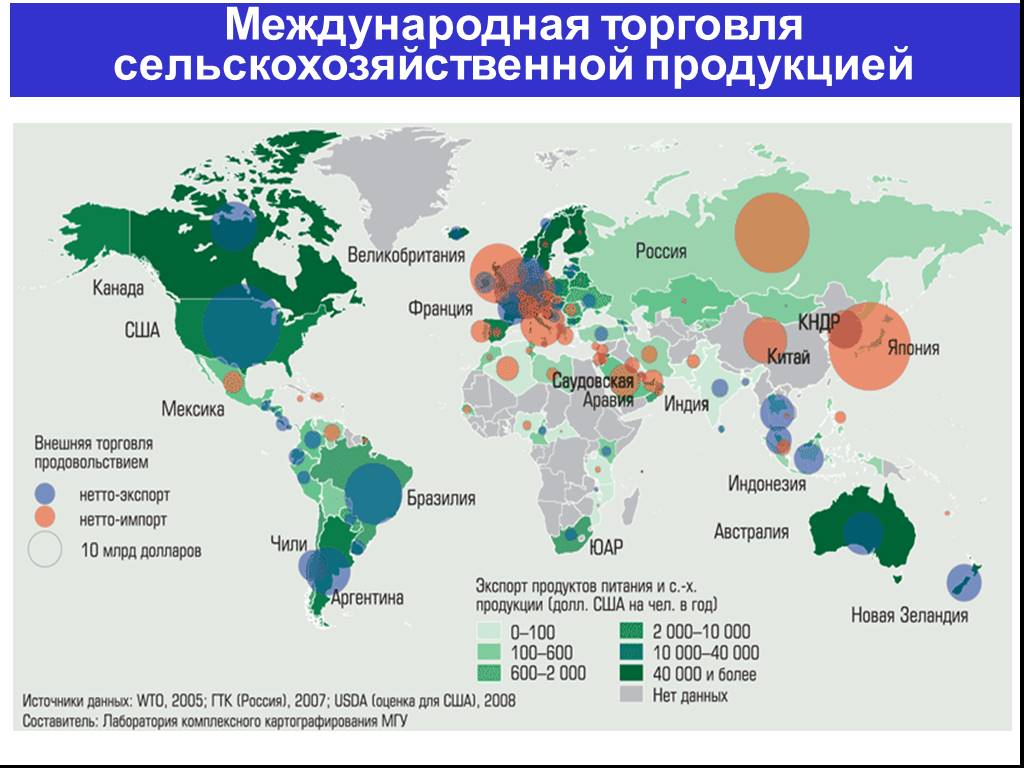
Conclusion: Social democratic countries are wealthy because of better economic and political organization.
«Social democrats always hand power over to the right»
One could just as easily claim that the right always hands power over to social democrats. Such an assertion stems from a misunderstanding or rejection of democratic systems and «rules of the game», where multiple political parties of various orientations acknowledge the necessity of power alternation, free elections, and other democratic principles. Adherents of totalitarian ideologies want power to belong solely to them. That is why all such regimes have failed in practice, and in some countries fascist and communist parties are even banned. As we noted in our article on social democratic parties, they sometimes lose elections and return to power only after some time. There is nothing wrong with this — it is called democracy and respect for democratic procedures, something social democratic parties embody. The truly unhealthy situation is when a single party remains in power indefinitely.
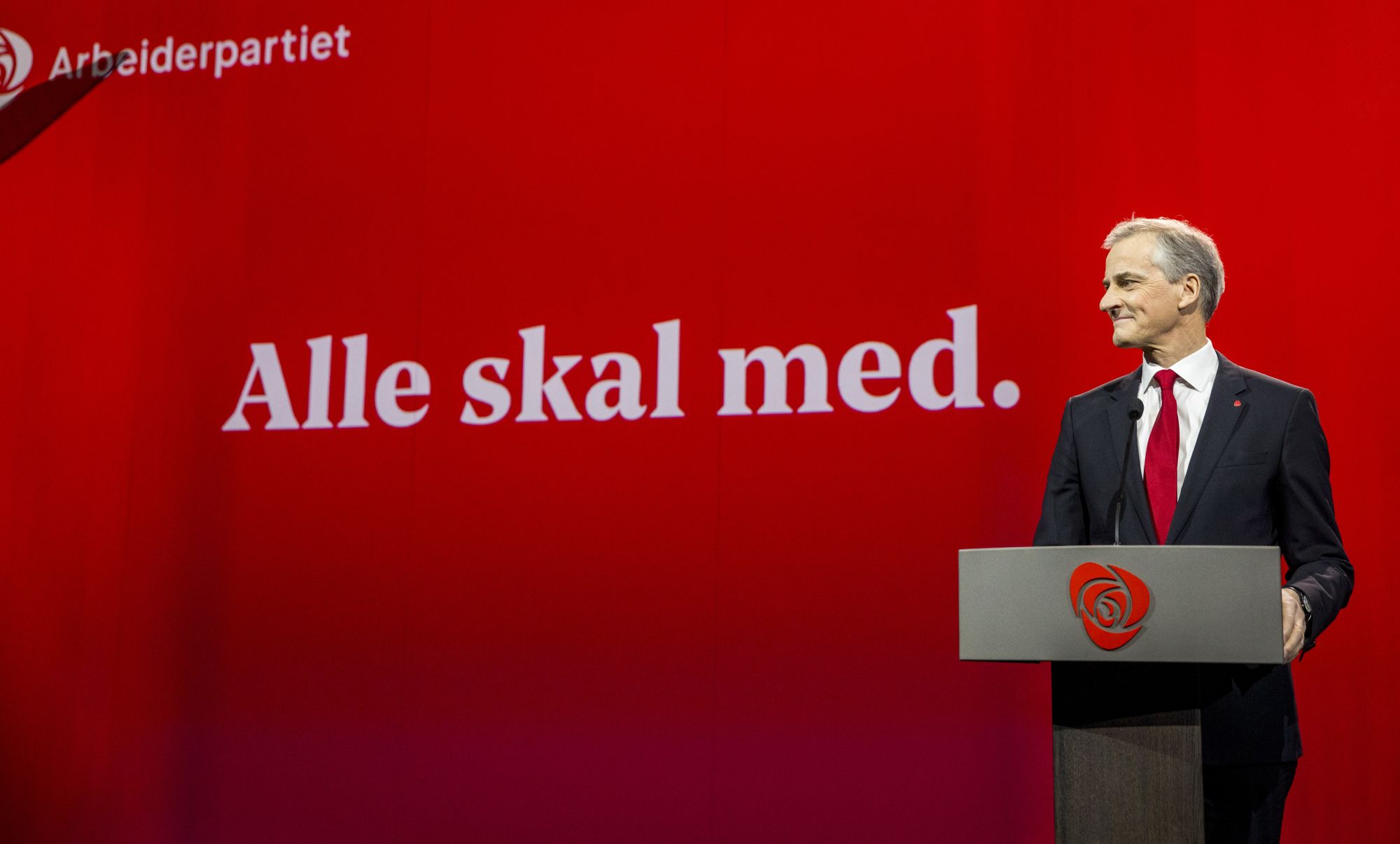
Conclusion: Social democrats both lose to and win over the right in elections, and that is normal — it is called democracy.
«Social democracy has reached a dead end»
If we compare with the late 1990s, when social democratic parties were in power in most leading European countries67, social democracy is currently experiencing a temporary decline. Compared to communists, however, today’s social democracy is truly flourishing. This ideology has already faced a crisis in the late 1930s, when Nazis and fascists took power in Germany and Spain, and in France after Léon Blum’s resignation, Édouard Daladier became prime minister. Moreover, the surge in popularity of social democrats in the late 1990s followed the conservative counteroffensive (including Margaret Thatcher and Ronald Reagan) in the late 1980s. Yet none of this prevented social democrats from achieving numerous successes after these crises. Political science candidate Nikolay Rabotyazhev, a leading research fellow in the political theory sector at MGIMO, emphasizes that social democrats respond and adapt quite flexibly to new conditions:
There are reasons to believe that European social democracy will find a way out of this situation and overcome the considerable difficulties it has faced in the era of globalization. The key is the repeatedly demonstrated ability of social democrats not to turn a blind eye to reality, to learn from their own and others’ experience, and to timely revise outdated notions68.
Conclusion: social democracy is capable, as usual, of overcoming temporary downturns.
«Social democrats are close to fascism»
Some communists claim that social democrats are close to fascism because of «class collaboration». Let’s look at the definition of fascism in the Merriam-Webster dictionary: «a political philosophy, movement, or regime that exalts nation, often above the individual, and that stands for a centralized autocratic government headed by a dictatorial leader, severe economic and social regimentation, and forcible suppression of opposition»69. According to Dictionary.com, it is «a governmental system led by a dictator having complete power, forcibly suppressing opposition and criticism, regulating industry and commerce, accompanied by aggressive nationalism and often racism»70. A similar definition is given by the Cambridge Dictionary: «a political system based on a powerful leader, government control, and pride in country and race, with suppression of political opposition»71.
Social democratic politics do not include exaltation of the nation, dictatorship, or suppression of opposition. Much of this, however, was present in the USSR under Stalin — for example, the elimination of socialist opposition or Stalinist racist policies. We see that social democrats, according to accepted definitions (and not the fantasies of communist politicians and commentators), have very little in common with fascism, while many communist regimes fit this definition quite well.


Conclusion: by all authoritative definitions of fascism, social democracy has very little in common with it.
As we discussed in the article on social democratic parties, they are also strong in Germany, Australia, and New Zealand. In many countries, social democrats have come to power and achieved significant successes. Of course, if they win elections in a backward country, they will not be able to turn it into Sweden in just a few years — in some cases, such results may take decades. But this does not prove the impossibility of social democratic policies — there are no political movements capable of turning a backward country into a leader in living standards within a few years; those who think so confuse politics with magic.

Conclusion: social democrats win and build welfare states beyond Scandinavia as well.
Let’s take Sweden as an example. In 2018, the country’s population was 10.2 million people72, and just under 0.4 million received benefits that year73. That is 3.85%. If we look at Norway, in 2019, with a population of 5.4 million people74, there were 130 thousand social assistance recipients75. That is 2.4%.
The myth spreaders are mostly conservatives of various stripes (free market advocates, fascists, and so forth) — presumably, they very much want people who are unable to work and have found themselves in difficult life situations to receive no government aid and be forced to beg on the streets, bothering passersby (or even attacking them), humiliating themselves, and sinking deeper and deeper into misery. But social democrats see nothing shameful in providing assistance and trying to help a person return to normal social life, especially when, as in Sweden and Norway, this does not prevent the country from remaining among the leaders in citizens’ quality of life. In general, when a country is a leader in such indicators, nitpicking about the number of people receiving benefits is a manipulation, an attempt to divert the conversation from its essence.
Conclusion: in social democratic countries, only a small number of people live on benefits, and there is nothing wrong with that.
«Social democrats are SJWs»
What are SJWs (Social Justice Warriors)? According to the Merriam-Webster dictionary, this term refers to a person who is excessively concerned with issues of fairness regarding race, gender, or identity76. The social democratic agenda is not limited to these issues (which are often discussed by many political ideologies, including right-wing ones) — for example, we have our own set of proposals for economic reform and political system reform. Regarding issues such as race, social democrats also have a set of solutions, but they note that those who advocate not for equality but for elevating certain nations or genders (even if they are oppressed nations or genders) are opponents of social democracy, as we discussed here.
Conclusion: SJWs can be found among many groups, including social democrats; however, a significant part of progressive social democrats, including the editorial team of «Logic of Progress», do not identify as such.
«Social democrats are responsible for the murder of Luxemburg and Liebknecht»
You can hardly be a true communist if you do not claim that social democrats are responsible for the murders of Rosa Luxemburg and Karl Liebknecht, and thus are traitors and murderers. This myth is connected with the November Revolution of 1918 in Germany, during which the monarchy was effectively overthrown bloodlessly and parliamentary democracy was established. After the monarchy’s fall, the communists demanded the establishment of a Soviet socialist republic in Germany and the transfer of all power to the soviets instead of convening a Constituent National Assembly. At the Imperial Congress of Workers’ and Soldiers’ Councils, their position was defeated.
However, the communists ignored the council’s decision, and under their influence in December 1918, sailors of the People’s Naval Division (1,500 people), brought to Berlin in November to protect the revolution, refused to obey the government order to leave the capital and seized the Berlin Palace, arresting the head of city administration Otto Wels (SPD)77. Subsequent events led to the resignation of Berlin Police Chief Emil Eichhorn, who supported the sailors’ rebellion. After this resignation, the KPD and USPD organized a mass protest demonstration in Berlin on January 5, 1919. That same evening, they decided to move to armed uprising. The uprising entered history as the January Uprising, also called the Spartacist uprising, since before becoming the KPD, the communist organization was named the «Spartacus League». Spartacist combat groups seized the building of the SPD’s central organ newspaper «Vorwärts» and then other publishing houses in Berlin’s «Newspaper Quarter». On January 6, the KPD and USPD formed a Revolutionary Committee headed by Liebknecht (KPD) and Georg Ledebour (USPD), which declared the Council of People’s Commissars deposed and announced that it was taking control of the country. However, social democrats acted decisively and quickly. Unlike the Russians, the German provisional government did not fall out with the military officers but managed to secure their support. The Spartacist uprising was suppressed by the Freikorps — volunteer military units. Many Freikorps officers held ultraconservative and far-right views, which were obvious within their ranks. They disliked and feared democracy but obeyed orders.

After the Spartacist uprising was suppressed, its leaders Rosa Luxemburg and Karl Liebknecht did not flee abroad but hid in safe houses. Liebknecht published an article in the communist newspaper «Rote Fahne» on January 15, assuring that «Spartacus» was not broken and would surely win. However, the next day neither Karl Liebknecht nor Rosa Luxemburg were seen again. The Spartacist leaders were arrested in their hiding place and taken to the Freikorps headquarters in the Eden Hotel. They were then decided to be transferred under military escort to the investigative prison in Moabit. It is important to emphasize that the Freikorps men harbored no warm feelings toward the Spartacists for ideological reasons, and several days earlier had fought bloody street battles with them. This predetermined the fate of the communist leaders — both Karl and Rosa were killed during the escort78. The executioners were Captain Horst von Pflugk-Hartung, Lieutenants Rudolf Lipman, Heinrich Stiege, Ulrich von Ritgen, Kurt Vogel, and Hermann Souchon. Thus, the murders were committed not by social democrats but by military officers acting on their own.
The social democratic government reacted to the killings with outrage. Its newspapers wrote: «Both murdered persons undoubtedly committed a series of serious crimes against the German people; however, they were just as undoubtedly protected by laws which, while threatening the guilty with deserved punishment, at the same time protect them from injustice. The lynch law, to which Rosa Luxemburg apparently fell victim, disgraces the German people, and from a moral point of view will be condemned by anyone, regardless of political party affiliation«79. The Central Council and the Berlin Executive Committee took the investigation into their own hands. Witnesses were called who contradicted the military’s claim that Karl and Rosa were «torn apart by a mob».
The murder of the communist leaders was not part of the social democratic plans; they wanted a public trial. The last thing social democrats wanted was to create a martyr’s aura around the communists. Here is how social democrat Eduard Bernstein, a staunch opponent of left-wing radicals, responded to their murder:
The violent murder committed against him had the sole consequence that legends formed around Liebknecht’s name, thanks to which the dead Karl Liebknecht was able to cause even more trouble than when alive… However, the fact that he did not come out alive from this reckless adventure, which he so shamelessly undertook and led together with his like-minded comrades, had the opposite effect for a long time. His death cleansed him and the entire enterprise… On a human level, one cannot help but regret that this, admittedly not very profound but still versatile and endowed with rare spiritual energy bearer of a famous name perished in the prime of life by such a terrible violent death. Yet the judgment of history on the politician Karl Liebknecht must nevertheless be that his last enterprise clearly showed the extent to which he lacked the qualities without which social democracy cannot fulfill its great mission as a creative force80.
Social democrats can be criticized for not showing enough energy and principle in investigating this case. In particular, they refused to hold a general socialist trial (a court of all left-wing parties) over the murderers and relied on a simple military court instead. This court, following its corporate ethics, effectively acquitted the accused and even allowed some to flee abroad. But to accuse social democrats of some kind of «bloodthirstiness» towards communists is sheer audacity. Even after the communist party’s armed uprising attempt, the KPD was never fully banned and continued its activities. The communists not only kept participating in elections but also organized new armed uprisings throughout Germany and called in their press for reprisals against the «Scheidemannites». It is highly likely that had the communists won in Berlin in January 1919, they would have shown not even a hundredth of the meticulousness that social democrats had. For example, in April 1919, the Bavarian Soviet Republic was proclaimed by left-wing radicals, where a Red Army and a Cheka were created following Soviet models. The planned economy introduced by the communists immediately led to administrative chaos81. Despite having quite decent resources, Bavaria experienced food shortages, and the Red Terror shocked the population. When the Freikorps entered Munich, many greeted them as liberators, and the large-scale White Terror did not cause much outrage. Thus, the communists themselves alienated people from sympathizing with the left and drove Bavarians into the arms of the right. Adolf Hitler, then listed as a Red Army soldier, was a participant and witness to all these events. Bavaria became ideal soil for the NSDAP to spread its ideas, and the Bavarian Soviet Republic became a scarecrow with which the Nazis frightened Germans.
German social democrats managed to repel threats to the republic both from the communists and from the more right-wing — repelling the Kapp Putsch of reactionary generals. While social democrats were strong, they succeeded in leading the country along the path of law towards democracy. How they became mired in splits, lost their majority, allowed militarists to gain strength, and gave way first to the conservative Hindenburg and then to Hitler — all this is a topic for a separate article. The strengthening of reactionary forces in Germany and the Nazi victory were not the fault of social democrats alone but of all political forces in Germany (including the communists). Social democrats made mistakes but did not take away people’s freedom. The communists chose to take up arms against social democrats, raising an uprising against democracy and aiming to seize all power for themselves, establishing an authoritarian regime similar to the communist regime in Russia. And if you go against someone with weapons, you must realize that you will most likely meet armed resistance. Thus, the communists themselves are responsible for the deaths of Rosa Luxemburg and Karl Liebknecht. Social democrats do not intend to offer the other cheek when someone comes at them with weapons and wants to use violence against them — we cannot guarantee the safety and lives of such «smart guys» because in an armed uprising, which was raised by their own initiative and will, avoiding deaths is far from always possible.
Conclusion: The deaths of Liebknecht and Luxemburg are the responsibility of the communists themselves, who chose to take up arms against the democratic government. Social democrats did not even give the order for their liquidation.
«Social democrats brought the Nazis to power in Germany»
Communists have invented more myths about German social democrats than about anyone else. Another such myth is that social democrats brought the NSDAP to power in Germany. However, there are many real reasons for the NSDAP’s rise to power, and social democrats’ mistakes do not play a significant role in this complex of causes.
The key reason for the NSDAP’s rise to power was the appointment by Paul von Hindenburg, put forward as a presidential candidate by conservative parties82, of Adolf Hitler as head of the German government on January 30, 193383. Hindenburg also issued the law granting Hitler emergency powers, which opened the way to the Nazi dictatorship. Another reason was the communists’ unwillingness to form a coalition against the Nazis with the social democrats. Thus, KPD leader Ernst Thälmann wrote in 1932:
In his brochure on “How will National Socialism be defeated?” Trotsky always gives only one answer: «The Communist Party of Germany must form a bloc with social democracy…» Trotsky sees the creation of this bloc as the only way to save the German working class from fascism. Either the CP creates a bloc with social democracy, or the German working class will be lost for 10–20 years. This is the theory of a thoroughly fallen fascist and counterrevolutionary. It is the worst theory, the most dangerous theory, and the most criminal theory that Trotsky has developed in recent years of his counterrevolutionary propaganda84.
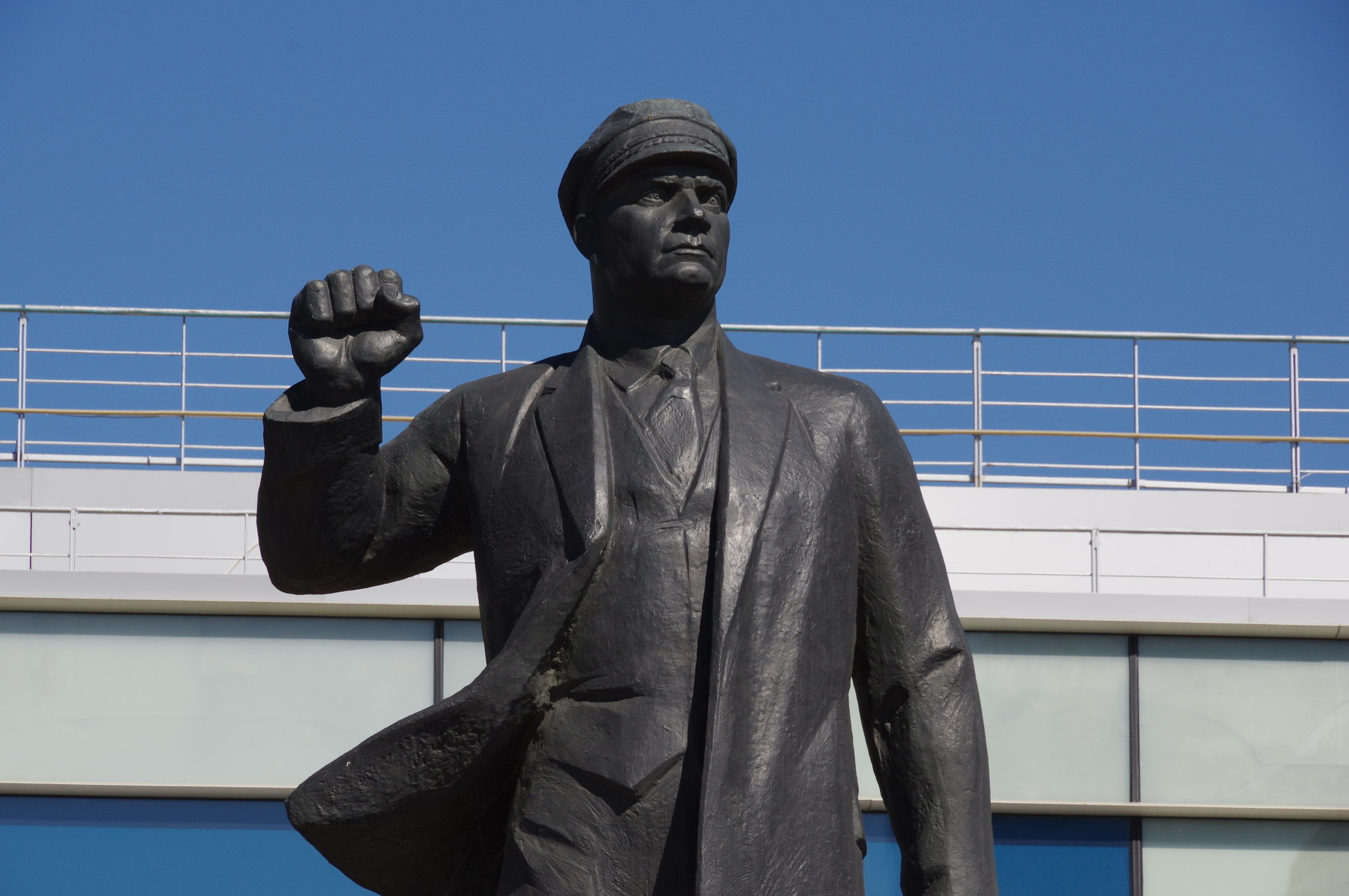
The communists took a very principled stance against the social democrats and Trotskyists, but they cooperated with the NSDAP: for example, they conducted a joint strike with the Nazis of the Berlin Transport Company workers in 193285. The representative of the KPD in the Saxon parliament, Kurt Alfred Sindermann, openly stated: «Bolshevism and fascism have a common goal — the destruction of capitalism and the Social Democratic Party»86. The widow of Heinz Neumann, a member of the KPD Central Committee, recalled:
In 1930, Stalin criticized Neumann’s methods of fighting the Nazis for the first time during a conversation… During this conversation, which took place at the end of 1931, Heinz tried to justify his policy by the increasing threat posed by the Nazis.
Stalin interrupted him:
– Comrade Neumann, do you not think that if the nationalists come to power in Germany, they will be occupied exclusively with the West, and we will be able to quietly and peacefully build socialism?
<…>
Abandoning Lenin’s hopes for a German revolution, Stalin did everything in his power to prevent such a revolution. For his imperialist aims, nationalist Germany was more useful than a communist one. Therefore, he made every effort to prevent the communists from uniting with the social democrats and even ordered the KPD to act jointly with the Nazis, while at the same time fueling an ever more irreconcilable hostility between the KPD and the SPD.
<…>
Stalin’s mouthpiece Manuilsky tried to cover this policy with a hypocritical façade, stating in January 1932 that National Socialism should be regarded as a sort of prologue to the proletarian dictatorship, since it supposedly helps to defeat the SPD and the trade unions. Allegedly, after this, the working masses would entrust control to the KPD87.
Conclusion: the communists took many measures to make a bloc with the social democrats impossible, thereby enabling Hitler’s rise to power. Conservatives contributed even more effort to advancing Hitler. The not-so-successful policy of the social democrats was one of the reasons for the NSDAP leader’s rise to power, but far from the main one and certainly not the only one.
In conclusion
Russian conservatives and communists are still competing over who can come up with more succinct theses against social democrats. Communist propaganda is somewhat less sophisticated, so here — as in all civilized countries — social democrats will push it to the margins of public life. Meanwhile, we invite you to write in the comments other fairy-tale narratives you have heard from conservatives and communists aimed at combating social democracy. We will analyze them and update the article accordingly.
- Mexico’s Constitution of 1917 with Amendments through 2015 // Constitute (www.constituteproject.org). [Electronic resource]. URL: https://www.constituteproject.org/constitution/Mexico_2015.pdf?lang=en – Article 123 (accessed: 30.08.2020).
- Stephan Bauer, Alfred Maylander. The Road to the Eight-Hour Day // Monthly Labor Review, August, 1919, Vol. 9, No. 2 (August, 1919), pp. 41-65.
- Eight-hour day // National Museum of Australia (www.nma.gov.au). [Electronic resource]. URL: https://www.nma.gov.au/defining-moments/resources/eight-hour-day (accessed: 30.08.2020).
- L.G. Stefanchuk. The Formation of the «Welfare State» in New Zealand // Southeast Asia: Current Development Issues. Issue XVIII. – Moscow: Institute of Oriental Studies, Russian Academy of Sciences, 2012. – pp. 300–315.
- Erik S. Reinert. How Rich Countries Got Rich, and Why Poor Countries Stay Poor [Text] / translated from English by N. Avtonomova; edited by V. Avtonomov; National Research University «Higher School of Economics». 4th ed. – 384 p. – Moscow: Higher School of Economics Publishing House, 2016. – p. 164.
- Thomas Piketty. Capital in the Twenty-First Century. – 592 p. – Moscow: Ad Marginem Press, 2015. – p. 509.
- Jens Beckert. Inherited Wealth. – 392 p. – Princeton University Press, 2008. – p. 196.
- Ha-Joon Chang. Economics: The User’s Guide / Ha-Joon Chang; translated from English by E. Ivchenko; [ed. E. Kondukova]. – 322 p. – Moscow: Mann, Ivanov & Ferber, 2015. – p. 55.
- European authorities took care of citizens // Kommersant (www.kommersant.ru). March 18, 2020, 12:53. [Electronic resource]. URL: https://www.kommersant.ru/doc/4292286 (accessed: 30.08.2020).
- How freelancers and small businesses can apply for coronavirus payments in Germany // The Local (www.thelocal.de). March 30, 2020. [Electronic resource]. URL: https://www.thelocal.de/20200330/how-freelancers-and-small-businesses-can-apply-for-coronavirus-payments-in-germany (accessed: 30.08.2020).
- Mie Olsen. Denmark: How a ‘high-tax’ state responds to coronavirus // Euobserver (euobserver.com). March 23, 2020, 7:02. [Electronic resource]. URL: https://euobserver.com/coronavirus/147827 (accessed: 30.08.2020).
- Luxembourg became the first country in the world to make public transport free // RIA Novosti (ria.ru). February 29, 2020, 20:33. [Electronic resource]. URL: https://ria.ru/20200229/1565680856.html (accessed: 30.08.2020).
- Spain to test four-day working week // Izvestia (iz.ru). March 15, 2021, 19:55. [Electronic resource]. URL: https://iz.ru/1137423/2021-03-15/chetyrekhdnevnuiu-rabochuiu-nedeliu-protestiruiut-v-ispanii (accessed: 12.08.2023).
- Maddy Savage. What really happened when Swedes tried six-hour days? // BBC News (www.bbc.co.uk). February 8, 2017. [Electronic resource]. URL: https://www.bbc.co.uk/news/business-38843341 (accessed: 30.08.2020).
- Maria Saygina. Universal Basic Income Around the World: Which Countries Adopt It and Which Refuse // VC (vc.ru). August 1, 2018. [Electronic resource]. URL: https://vc.ru/future/42937-bezuslovnyy-dohod-po-vsemu-miru-kakie-strany-vvodyat-a-kakie-otkazalis (accessed: 30.08.2020).
- Iain Begg, Fabian Mushövel and Robin Niblett. The Welfare State in Europe. Visions for Reform // Chatham House (www.chathamhouse.org). September 2015. [Electronic resource]. URL: https://www.chathamhouse.org/sites/default/files/publications/research/20150917WelfareStateEuropeNiblettBeggMushovelFinal.pdf (accessed: 14.11.2020).
- Esteban Ortiz-Ospina, Max Roser. Government Spending // Our World in Data (ourworldindata.org). [Electronic resource]. URL: https://ourworldindata.org/government-spending (accessed: 24.11.2020).
- Socialism // Great Russian Encyclopedia. Vol. 30. Moscow, 2015, pp. 749–750. [Electronic resource]. URL: https://bigenc.ru/world_history/text/3638996 (accessed: 17.06.2020).
- Political consolidation and economic growth, 1949–69 // Encyclopaedia Britannica (www.britannica.com). [Electronic resource]. URL: https://www.britannica.com/place/Germany/Political-consolidation-and-economic-growth-1949-69 (accessed: 30.08.2020).
- L.N. Brovko, 2015. Updated by GRE editorial team, 2020. Social Democratic Party of Germany // Great Russian Encyclopedia. Electronic version (2020); https://bigenc.ru/world_history/text/5677289 (accessed: 30.08.2020).
- Spanish Socialist Workers’ Party // RIA Novosti (ria.ru). 29 April 2019, 12:08. [Electronic resource]. URL: https://ria.ru/20190429/1553138278.html (accessed: 30.08.2020).
- A. Carlson. The Swedish Experiment in Demographic Policy: Gunnar and Alva Myrdal and the Interwar Population Crisis / Alan Carlson; translated from English by B. Pinsker. – 312 p. – Moscow: IRISEN, Mysl, 2009. – p. 60.
- Ibid.
- B.S. Orlov. Lectures on Social Democracy: Introductory Course. – Moscow, 2001
- Party Program // Official website of the CPRF (kprf.ru). [Electronic resource]. URL: https://kprf.ru/party/program (accessed: 30.08.2020).
- The CPRF will not participate in the Social Democratic Union // RIA Novosti (ria.ru). 23 March 2012, 13:21. [Electronic resource]. URL: https://ria.ru/20120323/603715602.html (accessed: 30.08.2020).
- G.A. Zyuganov on the death of Patriarch Alexy II: He made a huge contribution to the revival of the Church // Official website of the CPRF (kprf.ru). 5 December 2008, 15:19. [Electronic resource]. URL: https://kprf.ru/rus_soc/61751.html (accessed: 30.08.2020).
- Axios! CPRF leader Zyuganov approved mentioning God in the Constitution // Novye Izvestia (newizv.ru). 11 February 2020, 16:02. [Electronic resource]. URL: https://newizv.ru/news/politics/11-02-2020/aksios-lider-kprf-zyuganov-odobril-upominanie-boga-v-konstitutsii (accessed: 30.08.2020).
- Aleksei Bragin. Continue Stalin’s Work // Official website of the Moscow City Committee of the CPRF (msk.kprf.ru). 24 December 2019. [Electronic resource]. URL: https://msk.kprf.ru/2019/12/24/130895/ (accessed: 30.08.2020).
- Ivan Mizerov. Two Carnations for Stalin // Official website of the Moscow City Committee of the CPRF (msk.kprf.ru). 5 March 2020. [Electronic resource]. URL: https://msk.kprf.ru/2020/03/05/134628/ (accessed: 30.08.2020).
- I.Ya. Vagman, N.V. Vukina, V.V. Miroshnikova. 100 Famous Tyrants. – 510 p. – Kharkiv: Folio, 2003. – p. 105
- The Black Führer // Lenta (lenta.ru). 1 April 2018, 00:00. [Electronic resource]. URL: https://lenta.ru/articles/2018/04/01/bolshoj_papa/ (accessed: 30.08.2020).
- »I have eaten human flesh. It is very salty, even more so than leopard meat» // Kommersant (www.kommersant.ru). 25 January 2017, 13:55. [Electronic resource]. URL: https://www.kommersant.ru/doc/2449909 (accessed: 30.08.2020).
- Amin Getting Away With Biting Soviet Hand That Feeds Him // The New York Times (www.nytimes.com). 20 November 1975. [Electronic resource]. URL: https://www.nytimes.com/1975/11/20/archives/amin-getting-away-with-biting-soviet-hand-that-feeds-him.html (accessed: 30.08.2020).
- Genocide in Iraq: The Anfal Campaign Against the Kurds (Human Rights Watch Report, 1993) // Human Rights Watch (www.hrw.org). [Electronic resource]. URL: https://www.hrw.org/reports/1993/iraqanfal/ANFALINT.htm (accessed: 30.08.2020).
- Gough Whitlam recalled Vietnam troops within a week // The Australian (www.theaustralian.com.au). 21 October 2014. [Electronic resource]. URL: https://www.theaustralian.com.au/nation/politics/gough-whitlam-recalled-vietnam-troops-within-a-week/news-story/bb552797c13217bdcee37ac51f7e50f8 (accessed: 30.08.2020).
- Geoffrey Roberts. Stalin’s Wars: From World War to Cold War: 1939–1953. – 496 p. – New Haven and London: Yale University Press, 2008. – p. 42
- Paul Carell. Unternehmen Barbarossa. Verlag Ullstein GmbH. Frankfurt/M – Berlin, 1963
- AVP RF. F. 3a. Germany. D. 316. Original.
- Edward E. Ericson. Feeding the German Eagle: Soviet Economic Aid to Nazi Germany, 1933–1941 / Edward E. Ericson. – 265 p. – London, Praeger, 1999. – p. 208.
- AVP USSR, f. 06, op. 1, p. 8, d. 77, l. 1–2; reprinted in «The Year of Crisis: 1938–1939», Documents and Materials in Two Volumes.
- N.M. Stepanova. Labour Party // Great Russian Encyclopedia. Vol. 17. Moscow, 2010, pp. 173–175. [Electronic resource]. URL: https://bigenc.ru/world_history/text/2137537 (accessed: 30.08.2020).
- Harry Harmer. Friedrich Ebert: Germany – 208 p. – Haus Publishing, 2009
- Letters of P.B. Axelrod and Y.O. Martov (1901–1916). Berlin, 1924. – p. 301
- G.V. Plekhanov and P.B. Axelrod on the War // Nashe Delo. 1915. №2. – pp. 108–109
- E.V. Kostyaev. Granting war credits to the Kaiser’s government during World War I: Leaders of the Russian Social Democracy on the SPD’s position in the Reichstag [Text] / E.V. Kostyaev // Vestnik of Saratov State Socio-Economic University, 2009. – №2. – p. 153.
- A. Potresov. May Day // Delo. 1918. №5 (11). 15 (28) April – p. 2
- E.V. Kostyaev. Granting war credits to the Kaiser’s government during World War I: Leaders of the Russian Social Democracy on the SPD’s position in the Reichstag [Text] / E.V. Kostyaev // Vestnik of Saratov State Socio-Economic University, 2009. – №2. – p. 154.
- K. Kautsky. How the World War Began. – 230 p. – Moscow: «Krasnaya Nov», 1924. – pp. 227–228.
- Russia in the Corruption Perceptions Index 2019: 28 points and 137th place // Transparency International Russia (transparency.org.ru). 23 January 2020. [Electronic resource]. URL: https://transparency.org.ru/research/indeks-vospriyatiya-korruptsii/rossiya-v-indekse-vospriyatiya-korruptsii-2019-28-ballov-i-137-mesto.html (accessed: 30.08.2020).
- Unemployment rate by country, around the world // TheGlobalEconomy.com (www.theglobaleconomy.com). [Electronic resource]. URL: https://www.theglobaleconomy.com/rankings/unemployment_rate/ (accessed: 30.08.2020).
- I. Osadchaya. European Social Democracy Back in Power. What Has Changed? // Nauka i Zhizn (www.nkj.ru). №10, 1999. [Electronic resource]. URL: https://www.nkj.ru/archive/articles/9832/ (accessed: 12.08.2023).
- Ha-Joon Chang. Economics: The User’s Guide / Ha-Joon Chang; translated by E. Ivchenko; [scientific editor E. Kondukova]. – 322 p. – Moscow: Mann, Ivanov & Ferber, 2015. – p.150.
- GNI per capita, Atlas method (current US$) // World Bank Group (www.worldbank.org). [Electronic resource]. URL: https://data.worldbank.org/indicator/NY.GNP.PCAP.CD?most_recent_value_desc=true (accessed: 30.08.2020).
- GDP per capita, PPP (current international $) // World Bank Group (www.worldbank.org). [Electronic resource]. URL: https://data.worldbank.org/indicator/NY.GDP.PCAP.PP.CD?most_recent_value_desc=true (accessed: 30.08.2020).
- Exports – Country Comparison – TOP 100 // IndexMundi (www.indexmundi.com). [Electronic resource]. URL: https://www.indexmundi.com/g/r.aspx?v=85&t=100 (accessed: 30.08.2020).
- 2016 Global Manufacturing Competitiveness Index // Deloitte (www2.deloitte.com). [Electronic resource]. URL: https://www2.deloitte.com/in/en/pages/manufacturing/articles/global-manufacturing-competitiveness-index.html (accessed: 30.08.2020).
- Manufacturing, value added (current US$) // World Bank Group (www.worldbank.org). [Electronic resource]. URL: https://data.worldbank.org/indicator/NV.IND.MANF.CD?most_recent_value_desc=true (accessed: 30.08.2020).
- M. Ataman Aksoy, Francis Ng. The Evolution of Agricultural Trade Flows // ResearchGate (www.researchgate.net). January 2010. [Electronic resource]. URL: https://www.bbc.co.uk/news/business-38843341 (accessed: 30.08.2020).
- Structure of the euro area economy // European Central Bank (www.ecb.europa.eu). [Electronic resource]. URL: https://www.ecb.europa.eu/mopo/eaec/html/index.en.html (accessed: 30.08.2020).
- Corruption perceptions index 2019 // Transparency International (www.transparency.org). [Electronic resource]. URL: https://www.transparency.org/en/cpi/2019/results (accessed: 30.08.2020).
- Enemy of the State. Mikhail Svetov – Po-zhivomu (55:56) // YouTube (www.youtube.com). May 3, 2019. [Electronic resource]. URL: https://www.youtube.com/watch?v=lSfusnK6uB4 (accessed: 30.08.2020).
- Frank Viviano. This tiny country feeds the world // National Geographic (www.nationalgeographic.com). [Electronic resource]. URL: https://www.nationalgeographic.com/magazine/2017/09/holland-agriculture-sustainable-farming/ (accessed: 30.08.2020).
- Jesse Rintoul. Farming for the future: why the Netherlands is the 2nd largest food exporter in the world // DutchReview (dutchreview.com). August 20, 2020. [Electronic resource]. URL: https://dutchreview.com/news/innovation/second-largest-agriculture-exporter/ (accessed: 30.08.2020).
- Nick Skillicorn. How the Netherlands has innovated agriculture to become the world’s #2 exporter of food // Idea to Value (www.ideatovalue.com). December 17, 2018. [Electronic resource]. URL: https://www.ideatovalue.com/curi/nickskillicorn/2018/12/how-the-netherlands-has-innovated-agriculture-to-become-the-worlds-2-exporter-of-food/ (accessed: 30.08.2020).
- Structure of the economy and agriculture of Africa // MGIMO (mgimo.ru). [Electronic resource]. URL: https://mgimo.ru/upload/docs_6/econom_agro-africa.pdf (accessed: 30.08.2020).
- N.V. Rabotyazhev. European Social Democracy in Search of Adaptation to a Changing World // Politiya, 2012, No. 3. – p. 154.
- Ibid., p. 165.
- Fascism // Dictionary by Merriam-Webster (www.merriam-webster.com). [Electronic resource]. URL: https://www.merriam-webster.com/dictionary/fascism (accessed: 30.08.2020).
- Fascism // Dictionary.com (www.dictionary.com). [Electronic resource]. URL: https://www.dictionary.com/browse/fascism (accessed: 25.01.2020).
- Fascism // Cambridge Dictionary (dictionary.cambridge.org). [Electronic resource]. URL: https://dictionary.cambridge.org/dictionary/english/fascism (accessed: 25.01.2020).
- Population in the country, counties and municipalities on 31 December, 2018 and population change in July–December 2018 // Statistics Sweden (www.scb.se). [Electronic resource]. URL: https://www.scb.se/en/finding-statistics/statistics-by-subject-area/population/population-composition/population-statistics/pong/tables-and-graphs/quarterly-population-statistics–municipalities-counties-and-the-whole-country/julydecember-2018/ (accessed: 30.08.2020).
- Number of social welfare recipients in Sweden from 2009 to 2019 // Statista (www.statista.com). August 24, 2020. [Electronic resource]. URL: https://www.statista.com/statistics/530743/sweden-social-welfare-recipients/ (accessed: 30.08.2020).
- Norway Demographics Profile 2019 // IndexMundi (indexmundi.com). [Electronic resource]. URL: https://www.indexmundi.com/norway/demographics_profile.html (accessed: 30.08.2020).
- Social assistance // Statistics Norway (www.ssb.no). [Electronic resource]. URL: https://www.ssb.no/en/soshjelpk/ (accessed: 30.08.2020).
- Social Justice Warrior // Dictionary by Merriam-Webster (www.merriam-webster.com). [Electronic resource]. URL: https://www.merriam-webster.com/words-at-play/what-does-social-justice-warrior-sjw-mean (accessed: 30.08.2020).
- O.V. Vishlyov. November Revolution 1918 // Great Russian Encyclopedia. Vol. 23. Moscow, 2013, pp. 365–367. [Electronic resource]. URL: https://bigenc.ru/world_history/text/2672807 (accessed: 05.08.2021).
- G.A. Winkler. Weimar 1918-1933: History of the First German Democracy. – 878 p. – Moscow: ROSSPEN, 2013.
- E. Bernstein. The German Revolution. History of its Origin and Its First Period.
- Ibid.
- A.Yu. Vatlin. Soviet Echo in Bavaria: the Historical Drama of 1919 in Six Chapters, Five Scenes and Twenty Documents. / Vatlin Alexander. – 464 p. – Moscow: Novy Chronograph, 2014. – p. 151.
- O.V. Vishlyov. Paul von Hindenburg // Encyclopedia of World History (w.histrf.ru). [Electronic resource]. URL: https://w.histrf.ru/articles/article/show/gindienburg_bieniekkiendorf_und_fon_khindienburgh_paul_fon (accessed: 04.09.2021).
- V.N. Streletsky, B.A. Strashun et al. Germany // Great Russian Encyclopedia. Vol. 6. Moscow, 2006, pp. 686–748. [Electronic resource]. URL: https://bigenc.ru/geography/text/2354371 (accessed: 04.09.2021).
- Rob Sewell. Fascism’s Rise to Power // In Defence of Marxism (www.marxist.com). May 6, 2009. [Electronic resource]. URL: https://www.marxist.com/germany-sewell-chapter-7.htm (accessed: 04.09.2021).
- Klaus Von Wiegrefe. Nazis und kozis // Der Spiegel (www.spiegel.de). January 29, 2009. [Electronic resource]. URL: http://www.spiegel.de/spiegel/spiegelspecialgeschichte/d-55573688.html (accessed: 01.05.2013).
- Ibid.
- Margarete Buber-Neumann. From Potsdam to Moscow. Milestones of My Errors // Inostrannaya Literatura No. 4, 2015
